Special Report
States With the Largest Native American Populations
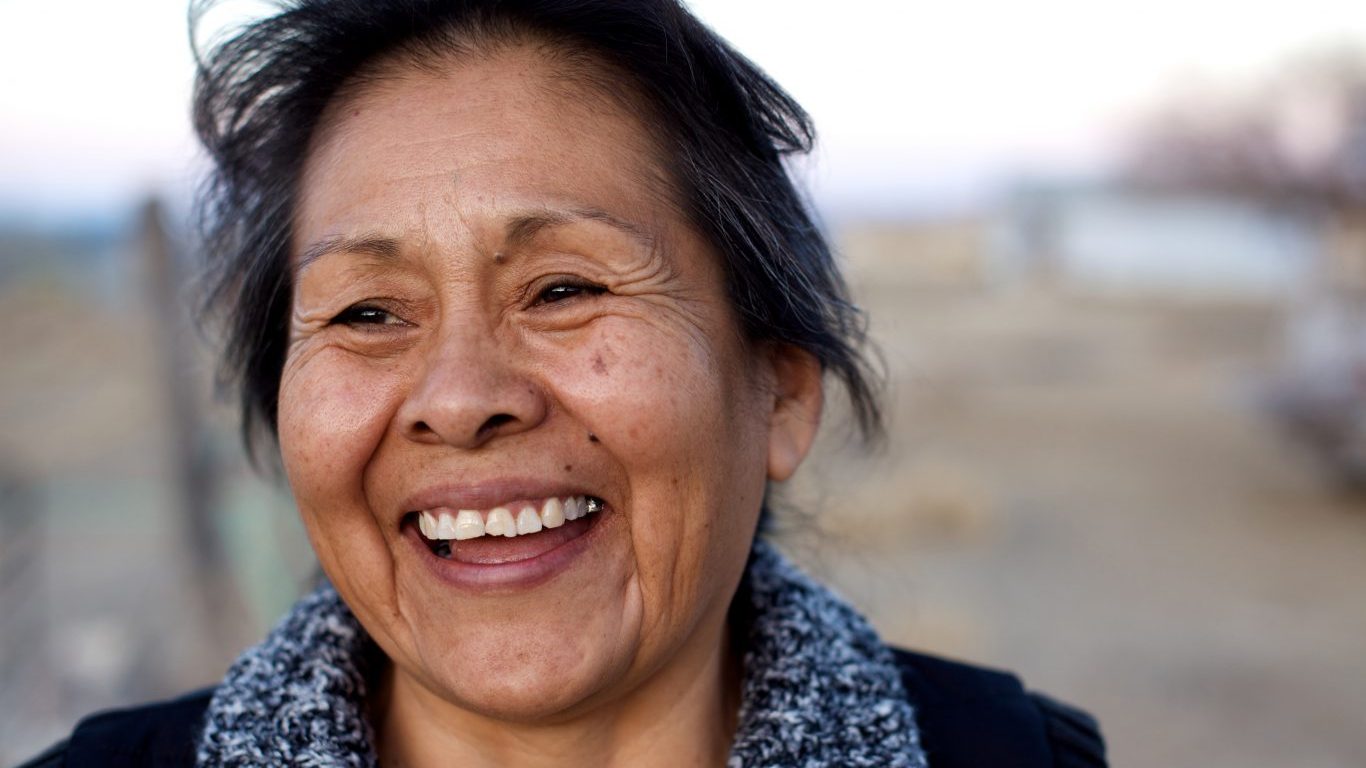
Published:
Last Updated:

Thanksgiving is considered a time of rest, reflection, and family gathering for the majority of Americans. The feast symbolizes the cooperation of European colonists and the continent’s Native residents, who have since endured centuries of oppression and forced assimilation. Today, Native American culture is concentrated in the nation’s many Indian reservations, and in the heritage of millions of Americans.
Today, there are roughly 5.6 million people who identify as Native American living in the United States, according to Census data. Scholars estimate that up to 10 million Native Americans inhabited what is now the United States at the time Christopher Columbus first stepped foot onto the Americas in 1492. That number rapidly plummeted over the course of European colonization, largely due to war and the spread of disease. The recorded population at the turn of the 20th century was about 250,000.
Accurately counting native populations in the United States has always been particularly difficult, said David Beck, professor in the department of Native American Studies at the University of Montana.
“When Census counts were made, American Indians wouldn’t participate in the Census because our federal policy, oftentimes, was very discriminatory against them and so people didn’t want to be identified,” said Beck.
24/7 Wall St. reviewed the U.S. Census Bureau’s 2016 5-year American Community Survey to identify the states with the the largest share of the population who self-identify as Native American or report having Native American heritage.
Click here to see the states with the largest Native American populations.
Click here to see our detailed findings and methodology.
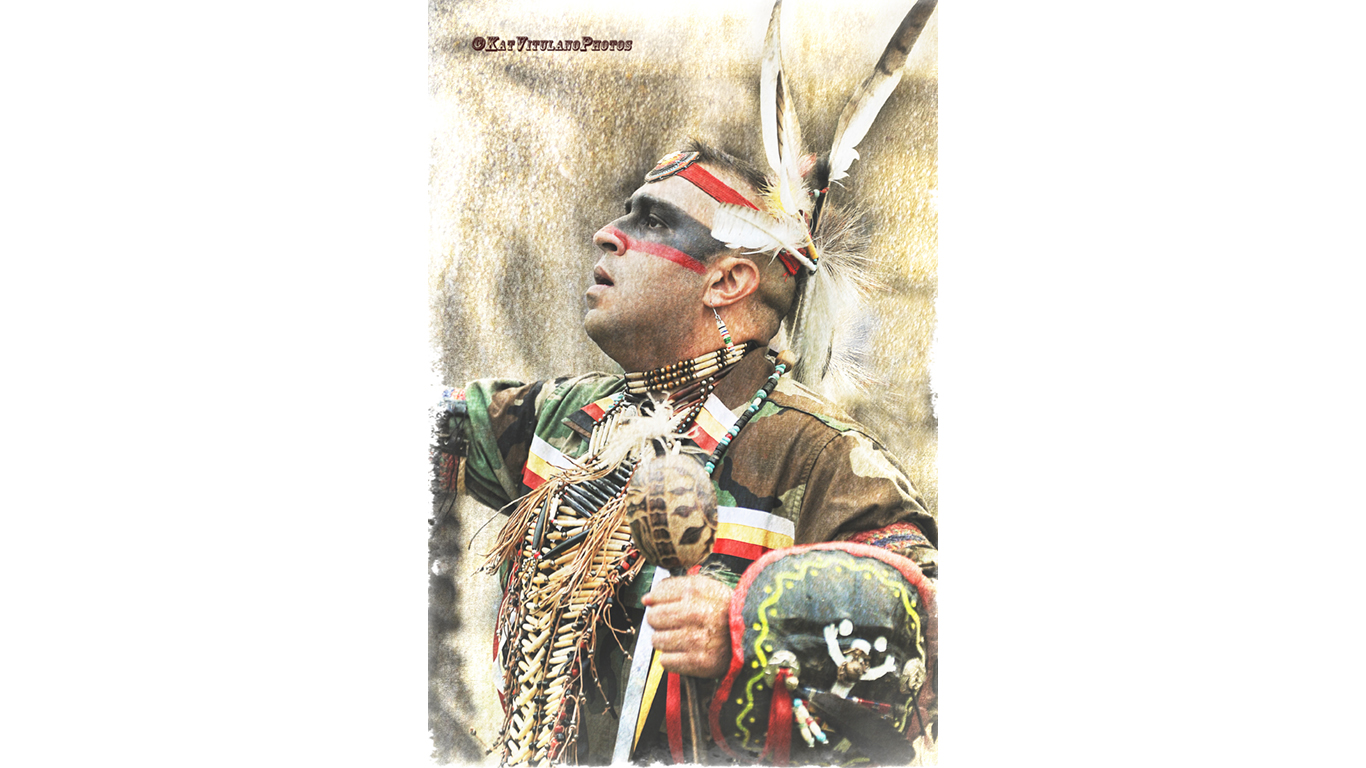
50. New Jersey
> State residents who self-identify as American Indian: 0.70% (62,804)
> Largest Native American group: Cherokee (11,129)
> Total state population: 8,915,456 (11th highest)
[in-text-ad]
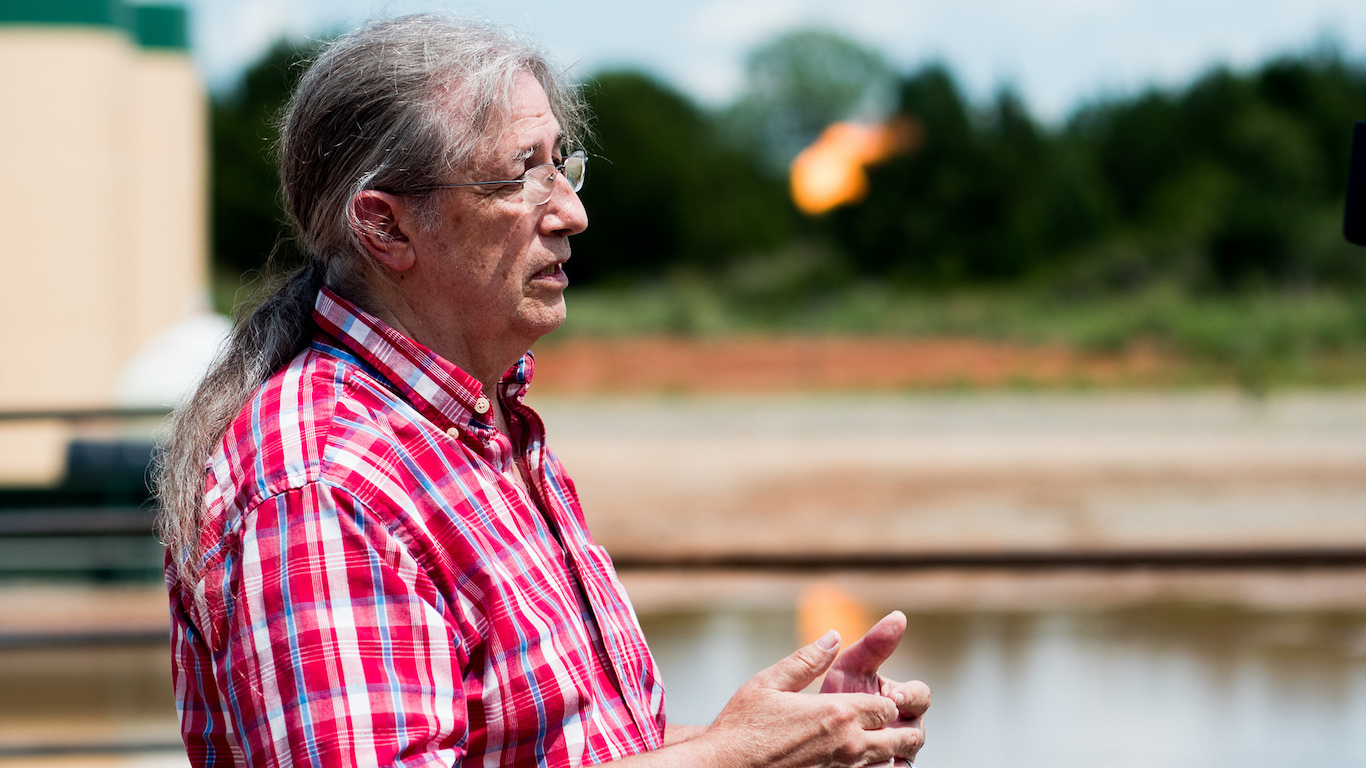
49. Massachusetts
> State residents who self-identify as American Indian: 0.73% (49,405)
> Largest Native American group: Cherokee (7,049)
> Total state population: 6,742,143 (14th highest)
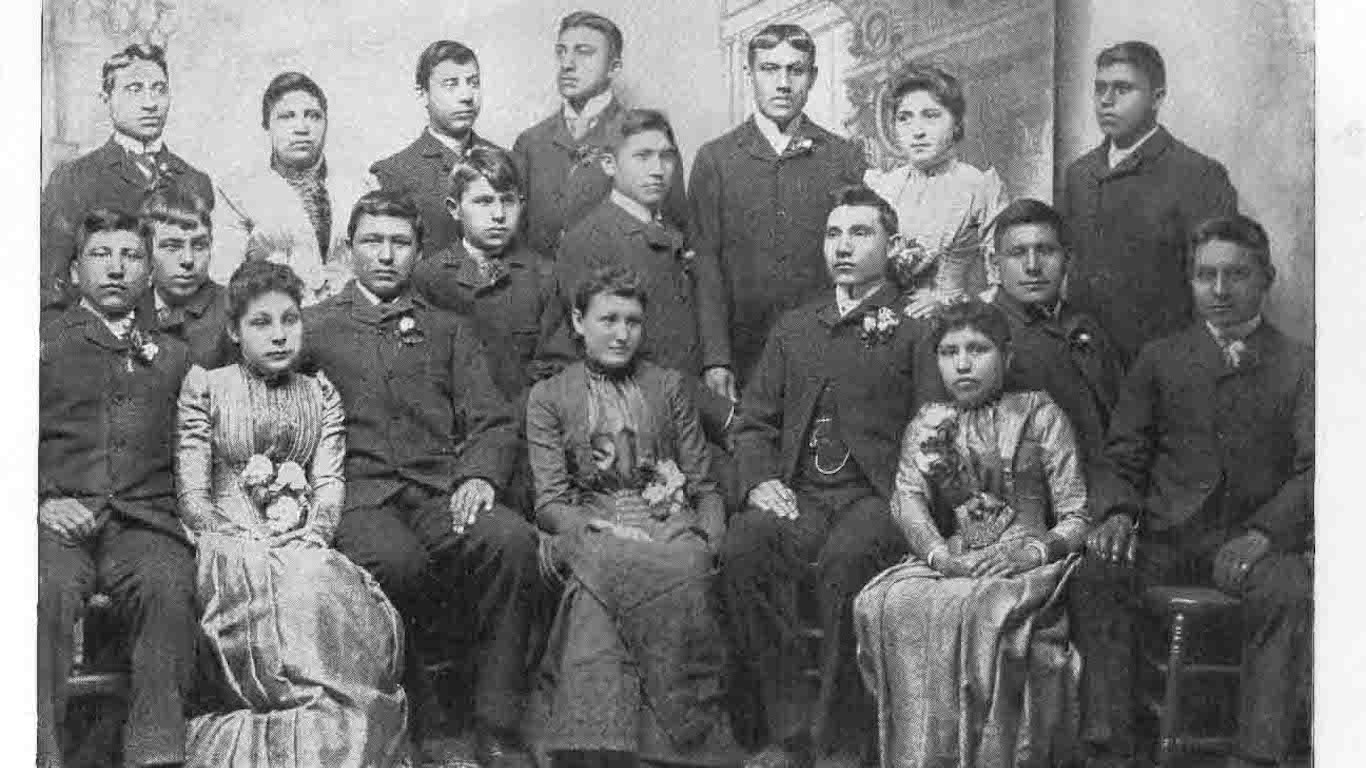
48. Pennsylvania
> State residents who self-identify as American Indian: 0.77% (98,310)
> Largest Native American group: Cherokee (21,675)
> Total state population: 12,783,977 (6th highest)
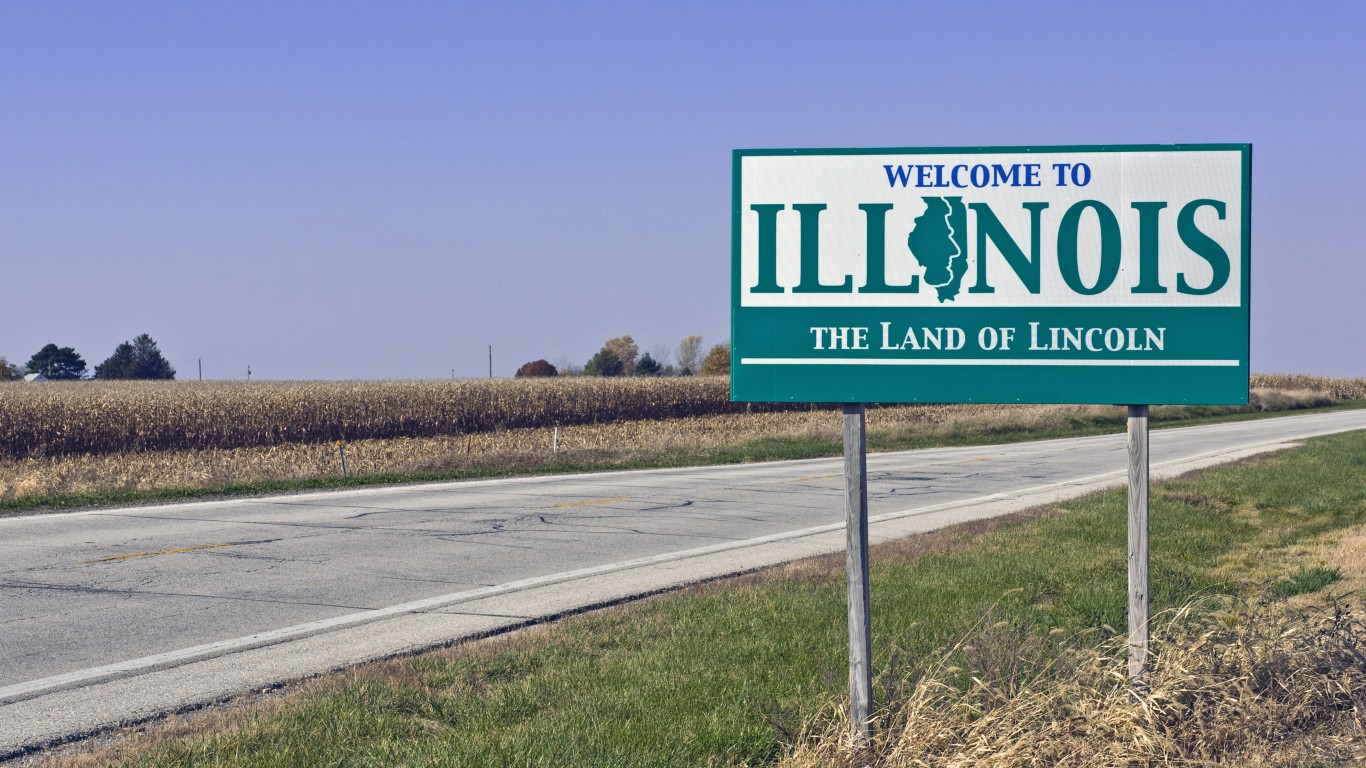
47. Illinois
> State residents who self-identify as American Indian: 0.77% (99,383)
> Largest Native American group: Cherokee (24,317)
> Total state population: 12,851,684 (5th highest)
[in-text-ad-2]
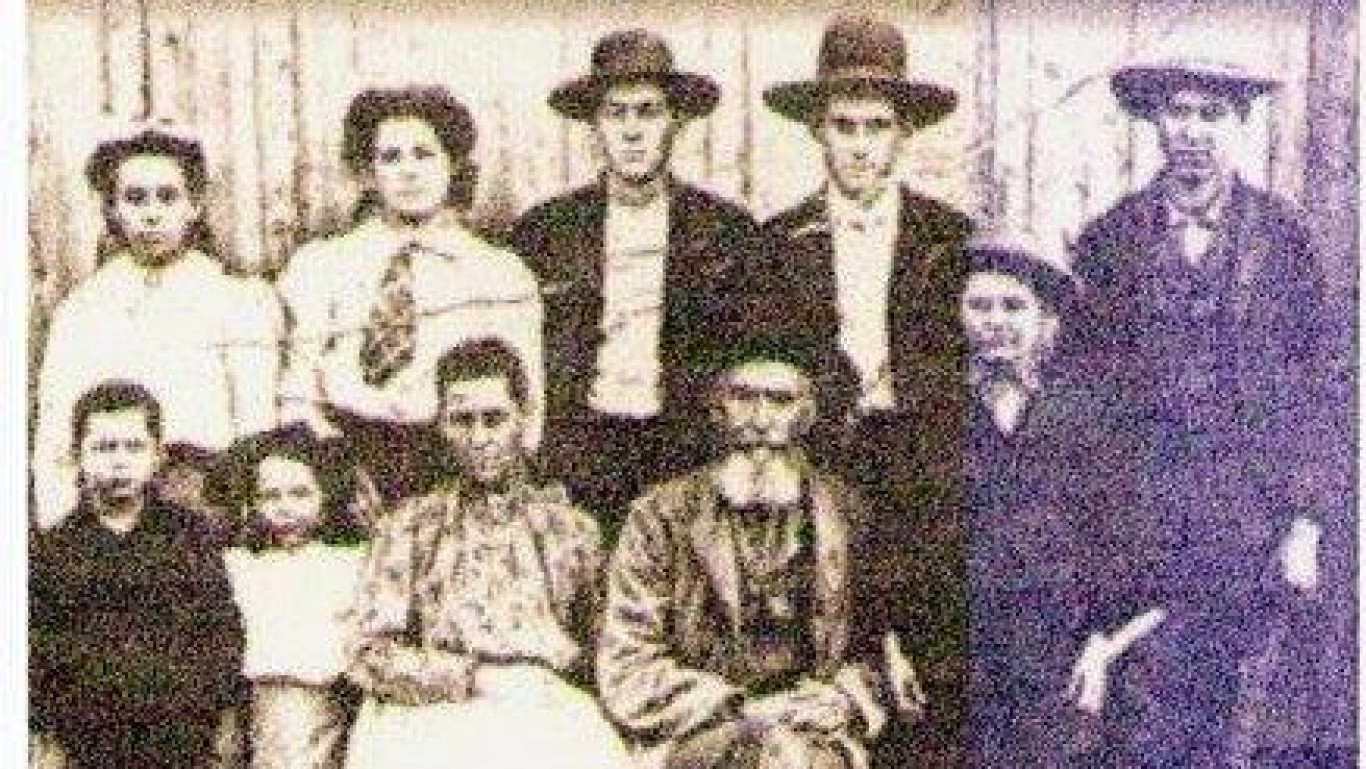
46. Kentucky
> State residents who self-identify as American Indian: 0.77% (34,126)
> Largest Native American group: Cherokee (14,245)
> Total state population: 4,411,989 (25th lowest)
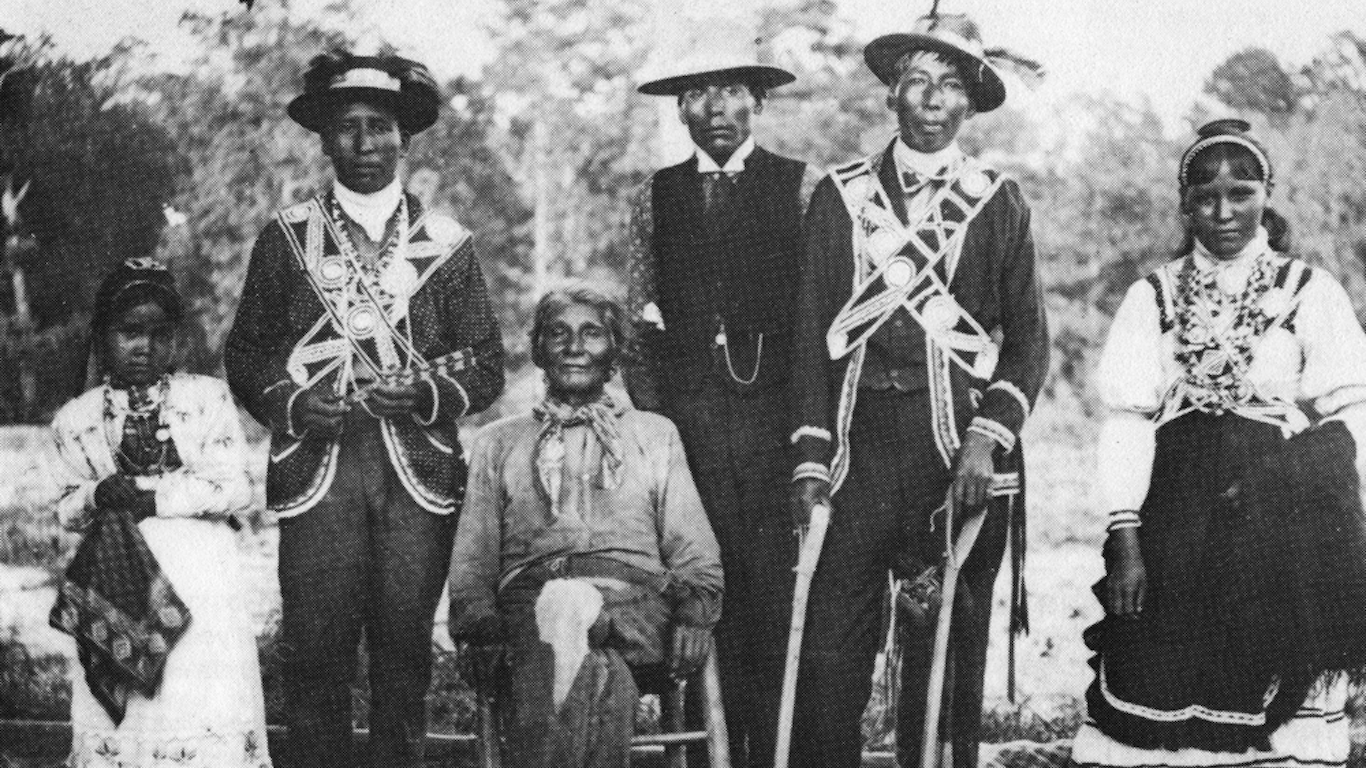
45. Mississippi
> State residents who self-identify as American Indian: 0.82% (24,578)
> Largest Native American group: Choctaw (11,071)
> Total state population: 2,989,192 (20th lowest)
[in-text-ad]
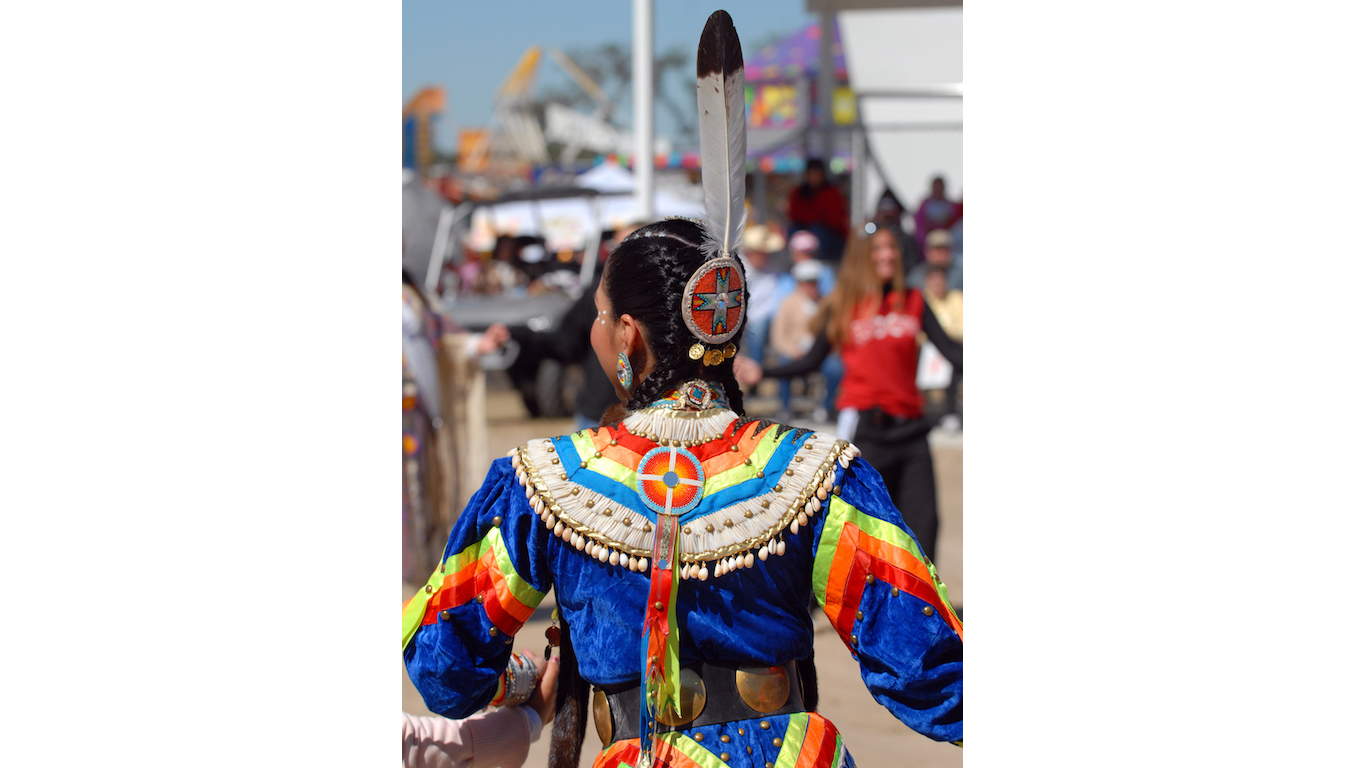
44. Florida
> State residents who self-identify as American Indian: 0.83% (165,888)
> Largest Native American group: Cherokee (44,541)
> Total state population: 19,934,451 (3rd highest)
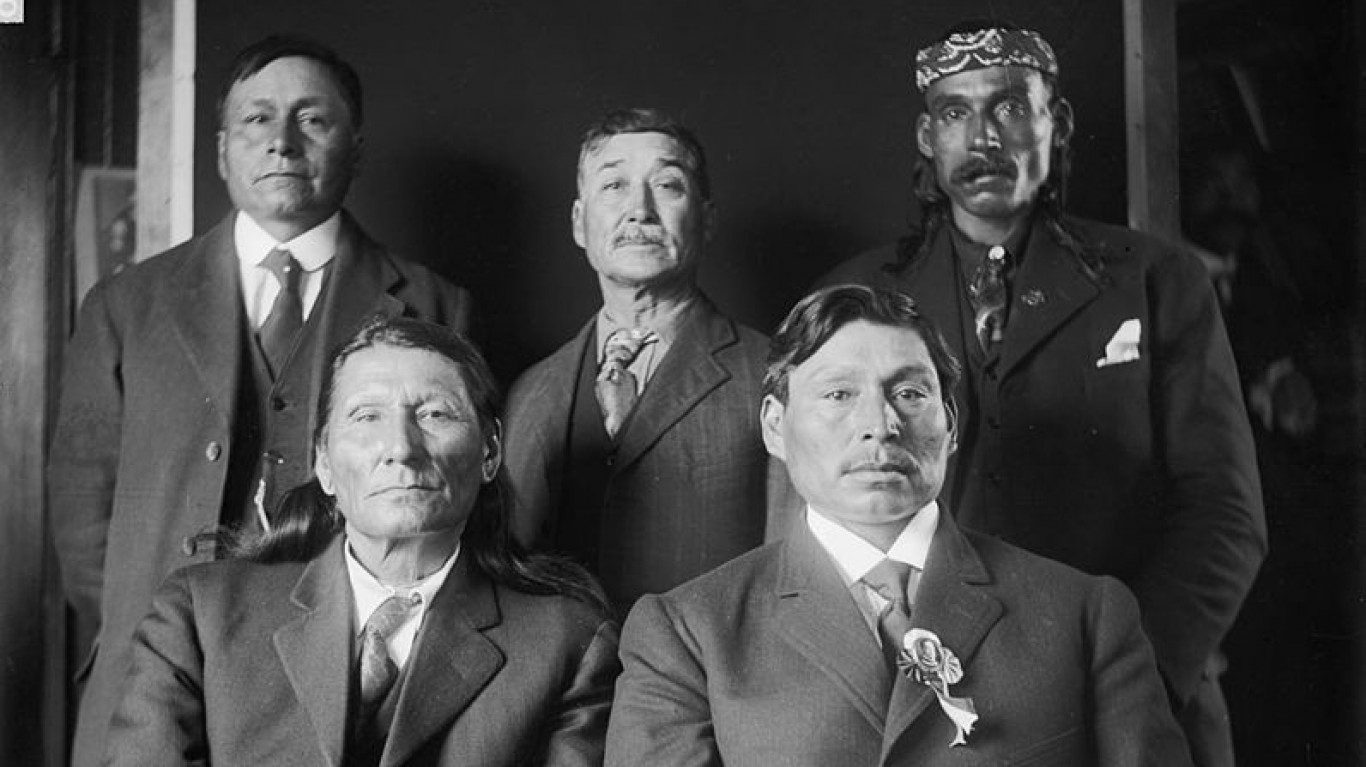
43. Indiana
> State residents who self-identify as American Indian: 0.84% (55,391)
> Largest Native American group: Cherokee (18,029)
> Total state population: 6,589,578 (16th highest)
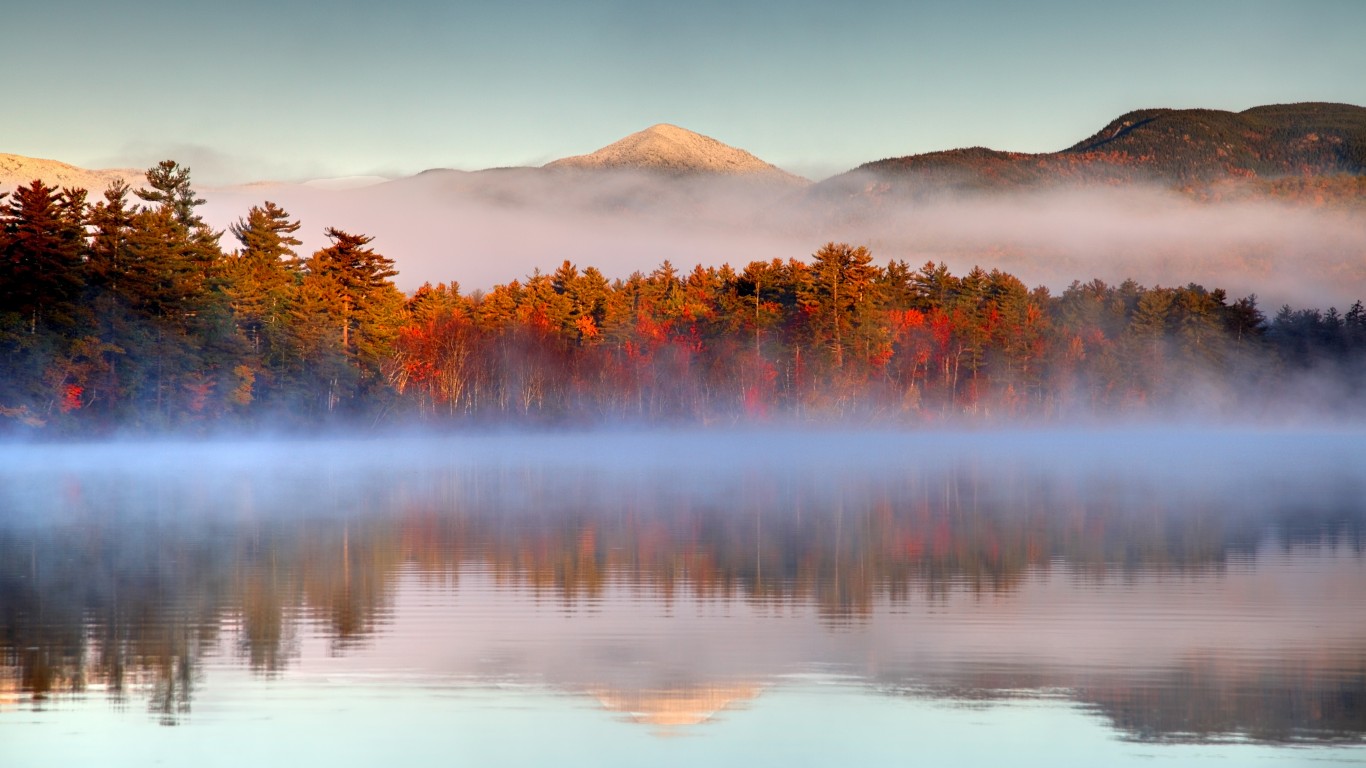
42. New Hampshire
> State residents who self-identify as American Indian: 0.85% (11,244)
> Largest Native American group: Cherokee (2,133)
> Total state population: 1,327,503 (9th lowest)
[in-text-ad-2]
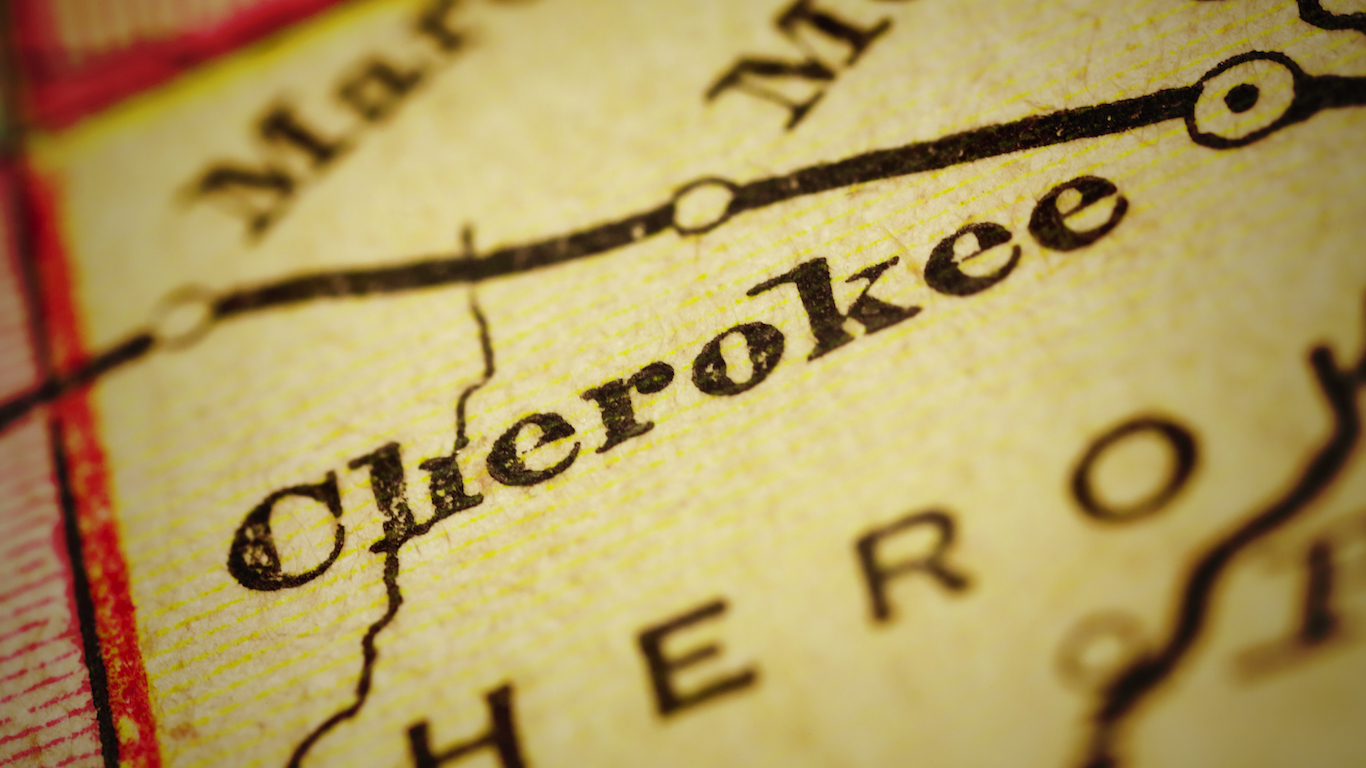
41. Iowa
> State residents who self-identify as American Indian: 0.86% (26,718)
> Largest Native American group: Cherokee (4,545)
> Total state population: 3,106,589 (21st lowest)
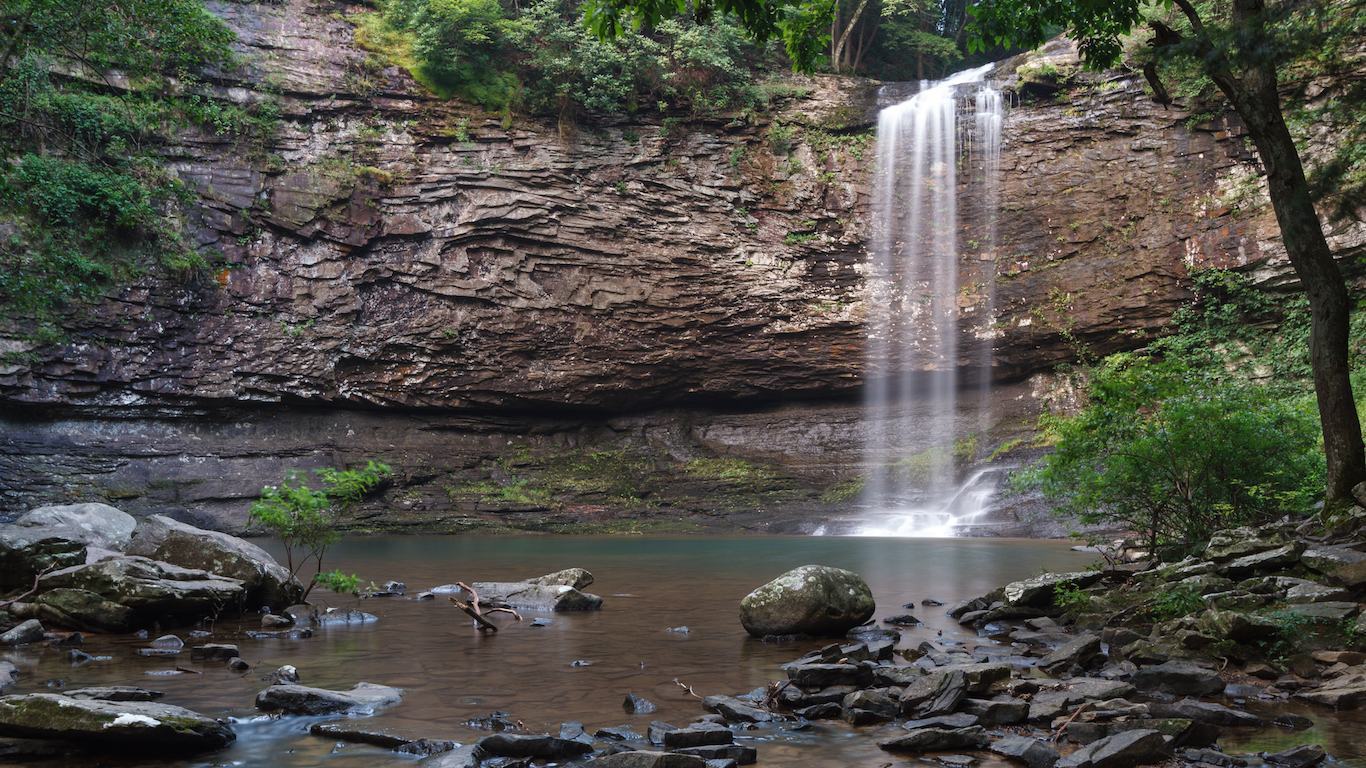
40. Georgia
> State residents who self-identify as American Indian: 0.87% (88,365)
> Largest Native American group: Cherokee (31,966)
> Total state population: 10,099,320 (8th highest)
[in-text-ad]
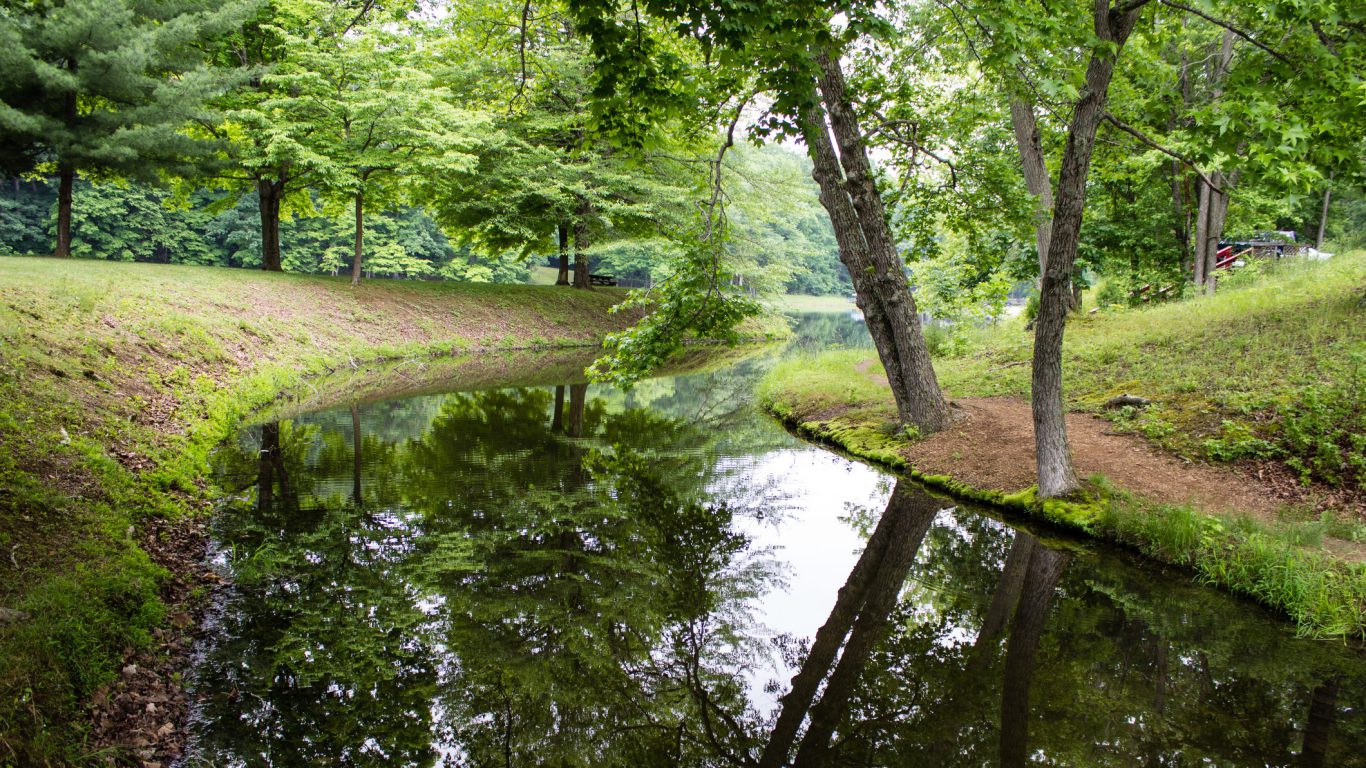
39. Ohio
> State residents who self-identify as American Indian: 0.90% (104,392)
> Largest Native American group: Cherokee (37,692)
> Total state population: 11,586,941 (7th highest)
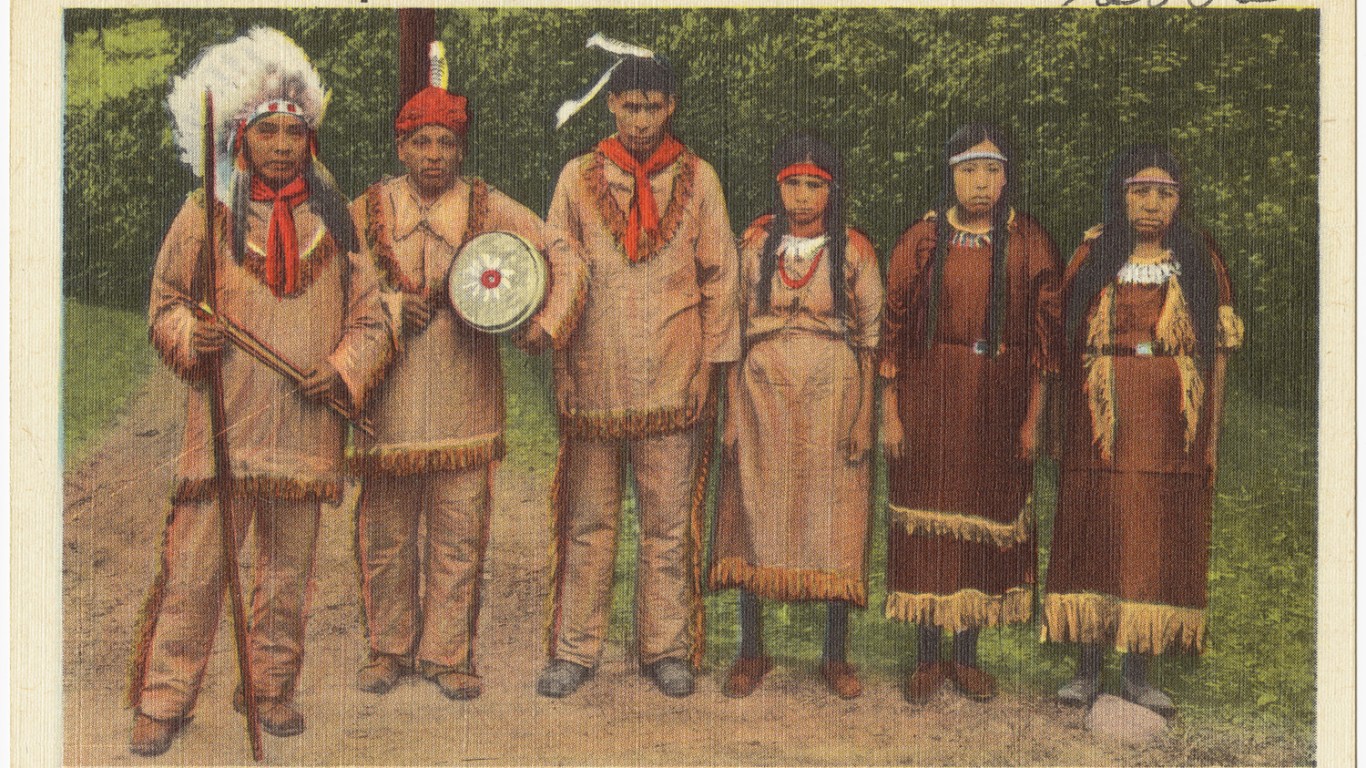
38. South Carolina
> State residents who self-identify as American Indian: 0.96% (46,219)
> Largest Native American group: Cherokee (16,707)
> Total state population: 4,834,605 (24th highest)
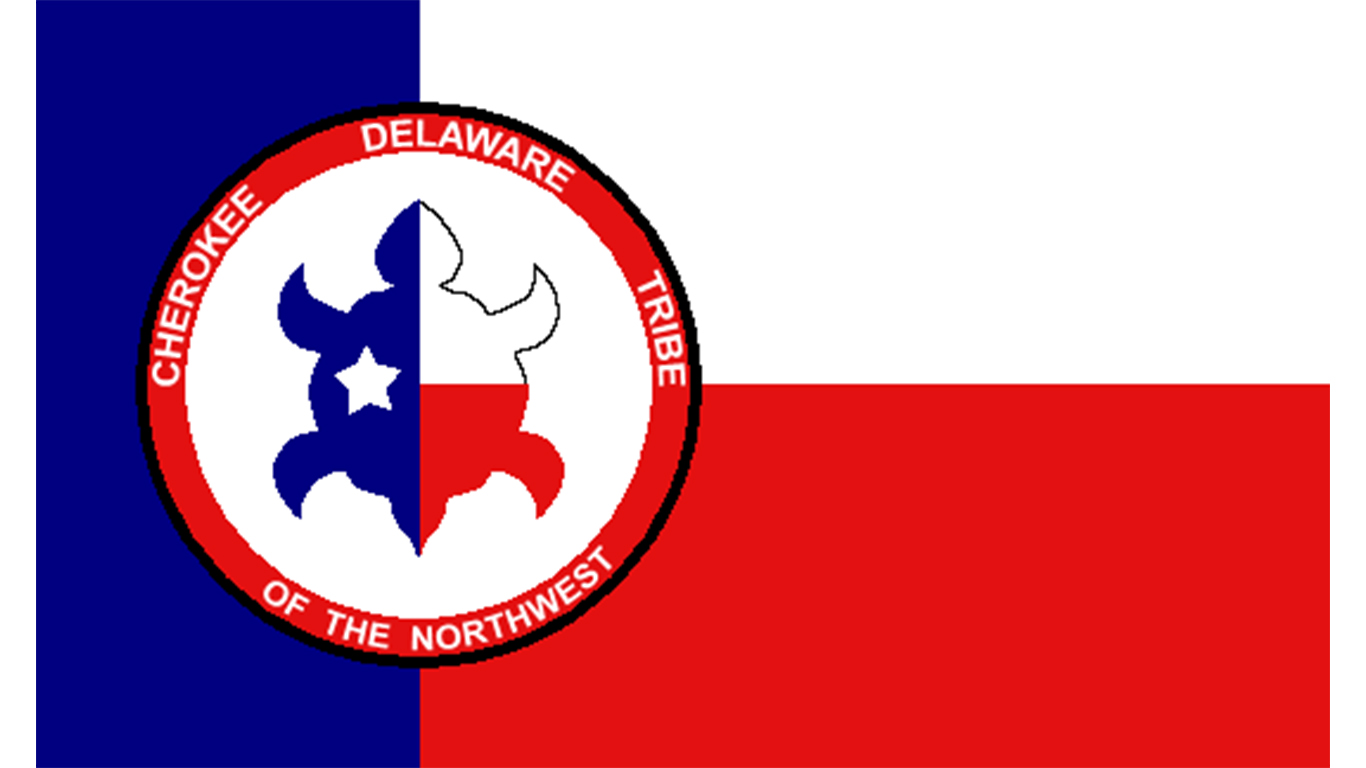
37. Delaware
> State residents who self-identify as American Indian: 1.01% (9,443)
> Largest Native American group: Cherokee (2,224)
> Total state population: 934,695 (6th lowest)
[in-text-ad-2]
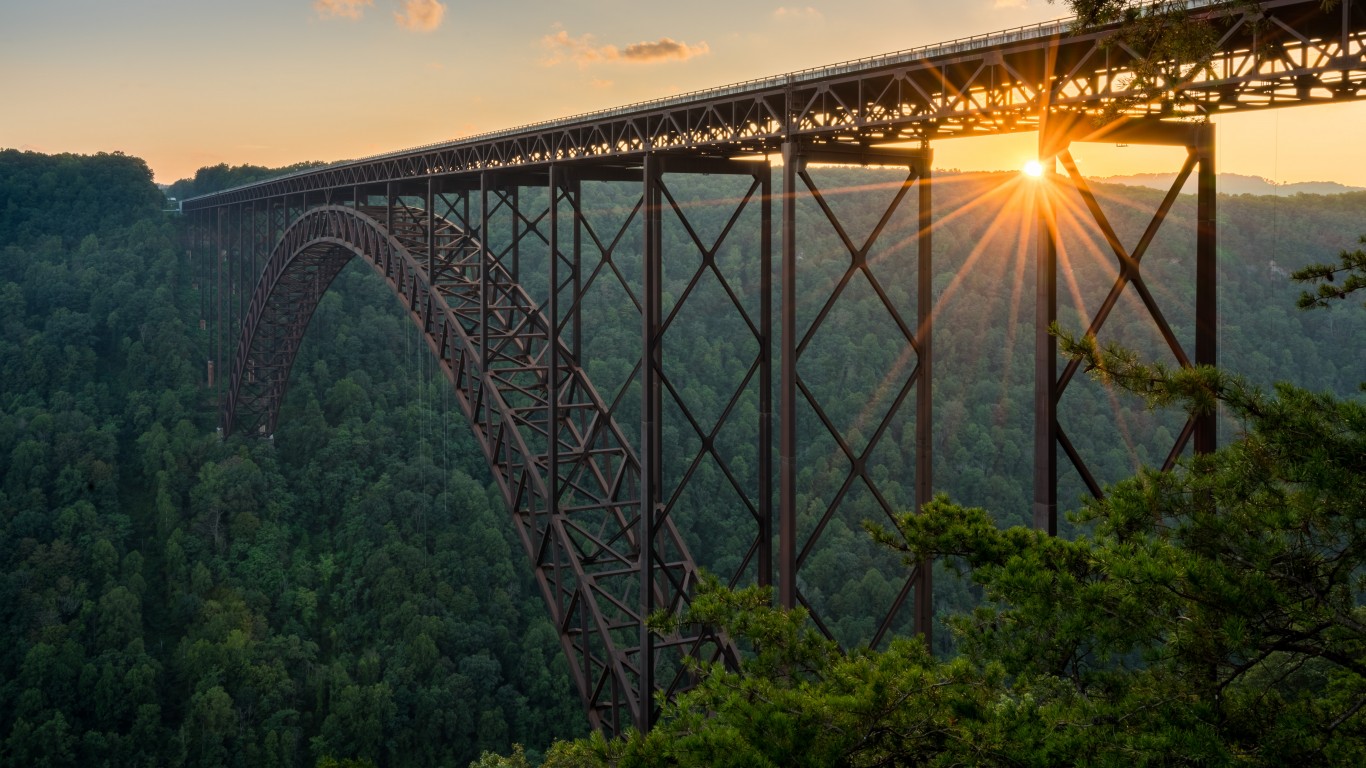
36. West Virginia
> State residents who self-identify as American Indian: 1.01% (18,687)
> Largest Native American group: Cherokee (8,323)
> Total state population: 1,846,092 (13th lowest)
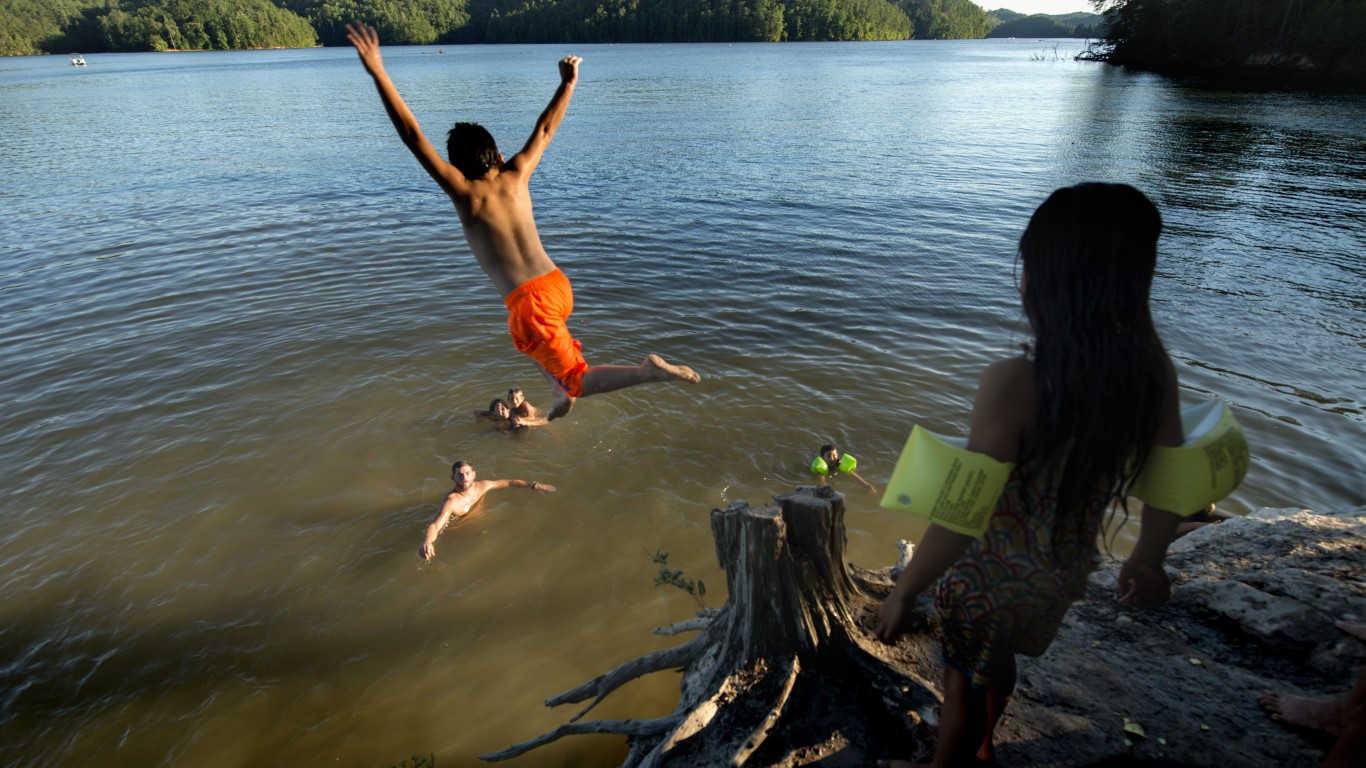
35. Tennessee
> State residents who self-identify as American Indian: 1.03% (67,290)
> Largest Native American group: Cherokee (35,038)
> Total state population: 6,548,009 (17th highest)
[in-text-ad]
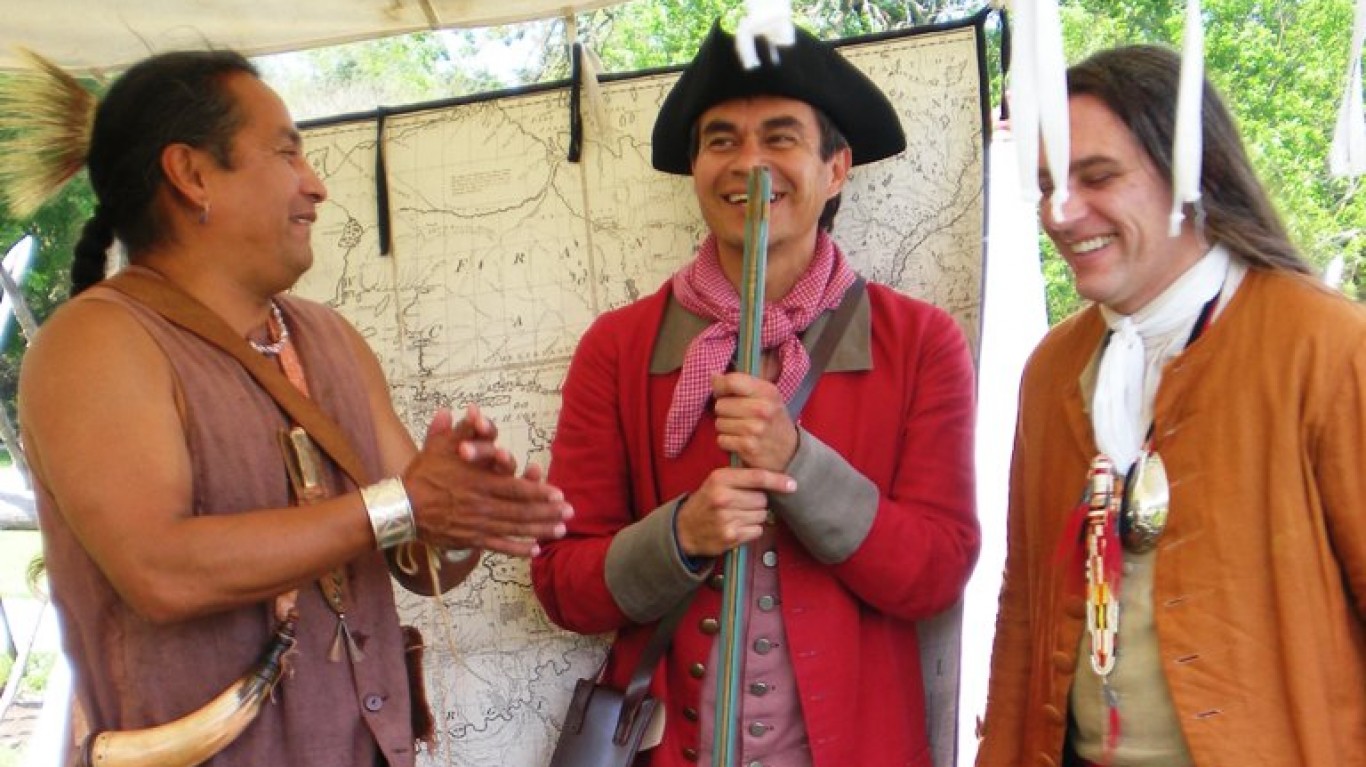
34. Virginia
> State residents who self-identify as American Indian: 1.03% (85,820)
> Largest Native American group: Cherokee (25,374)
> Total state population: 8,310,301 (12th highest)
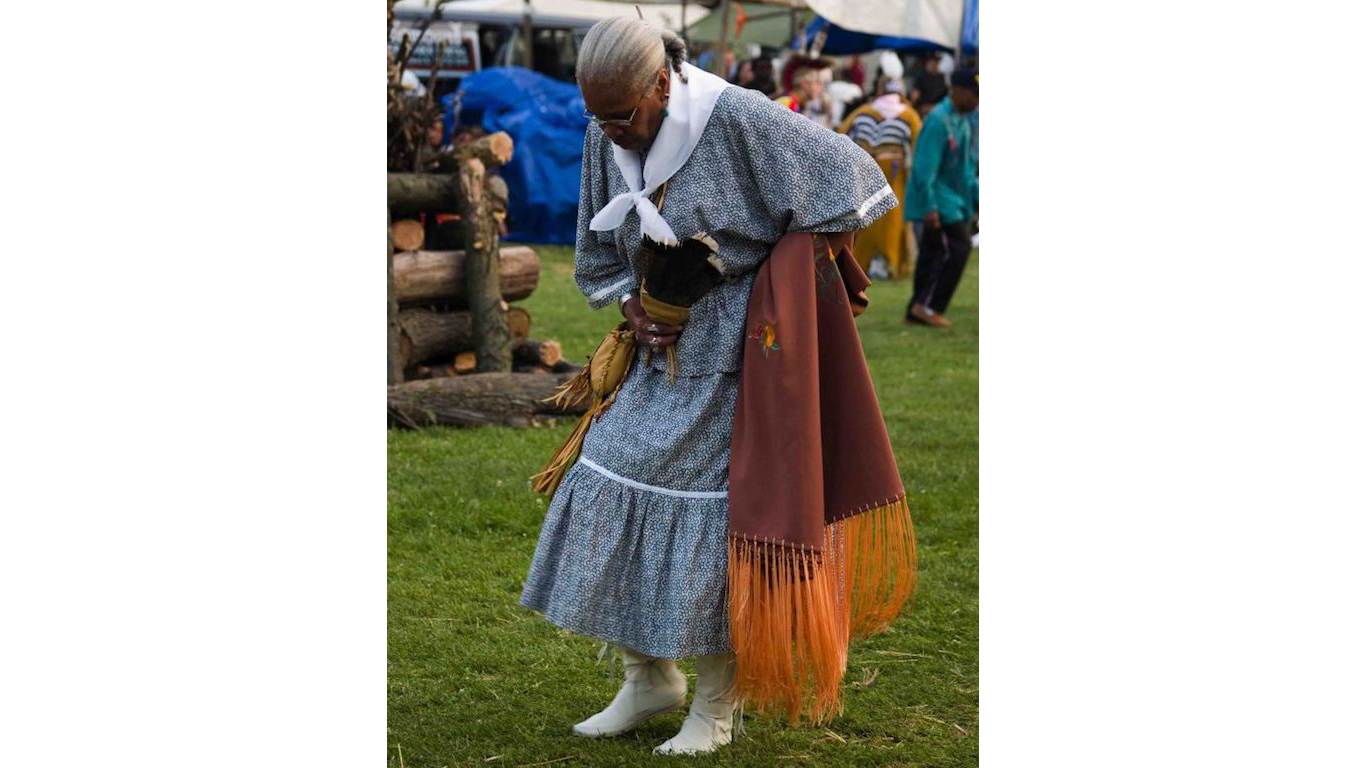
33. Connecticut
> State residents who self-identify as American Indian: 1.04% (37,216)
> Largest Native American group: Cherokee (5,176)
> Total state population: 3,588,570 (22nd lowest)
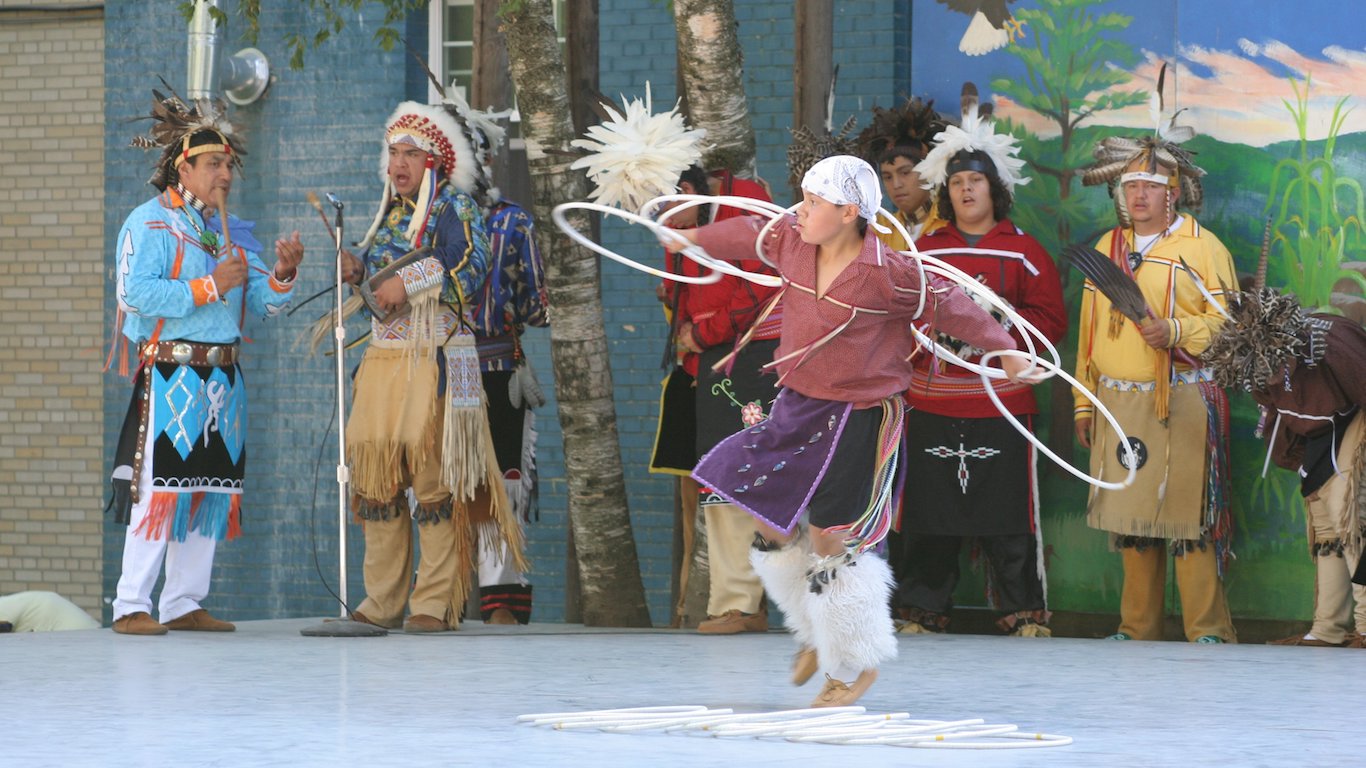
32. New York
> State residents who self-identify as American Indian: 1.05% (205,873)
> Largest Native American group: Iroquois (34,569)
> Total state population: 19,697,457 (4th highest)
[in-text-ad-2]
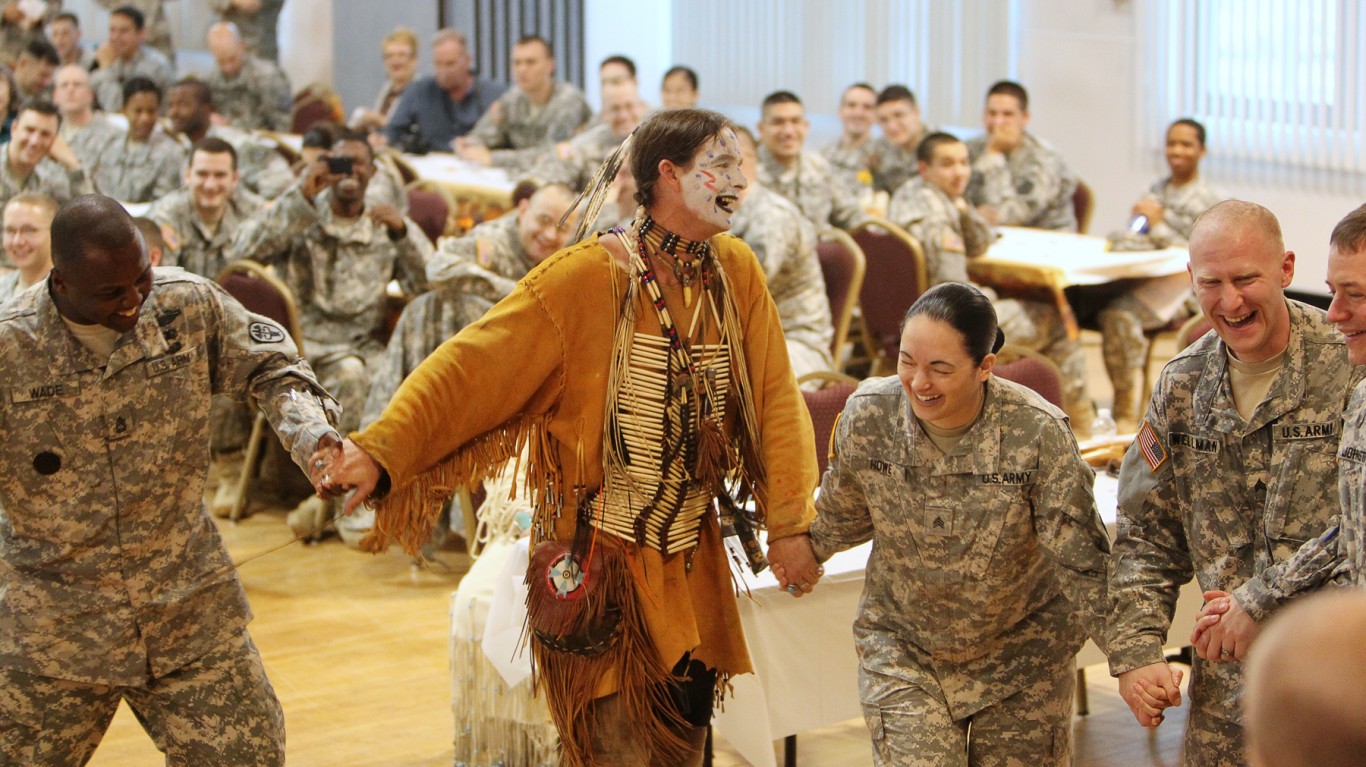
31. Maryland
> State residents who self-identify as American Indian: 1.07% (64,022)
> Largest Native American group: Cherokee (15,307)
> Total state population: 5,959,902 (19th highest)
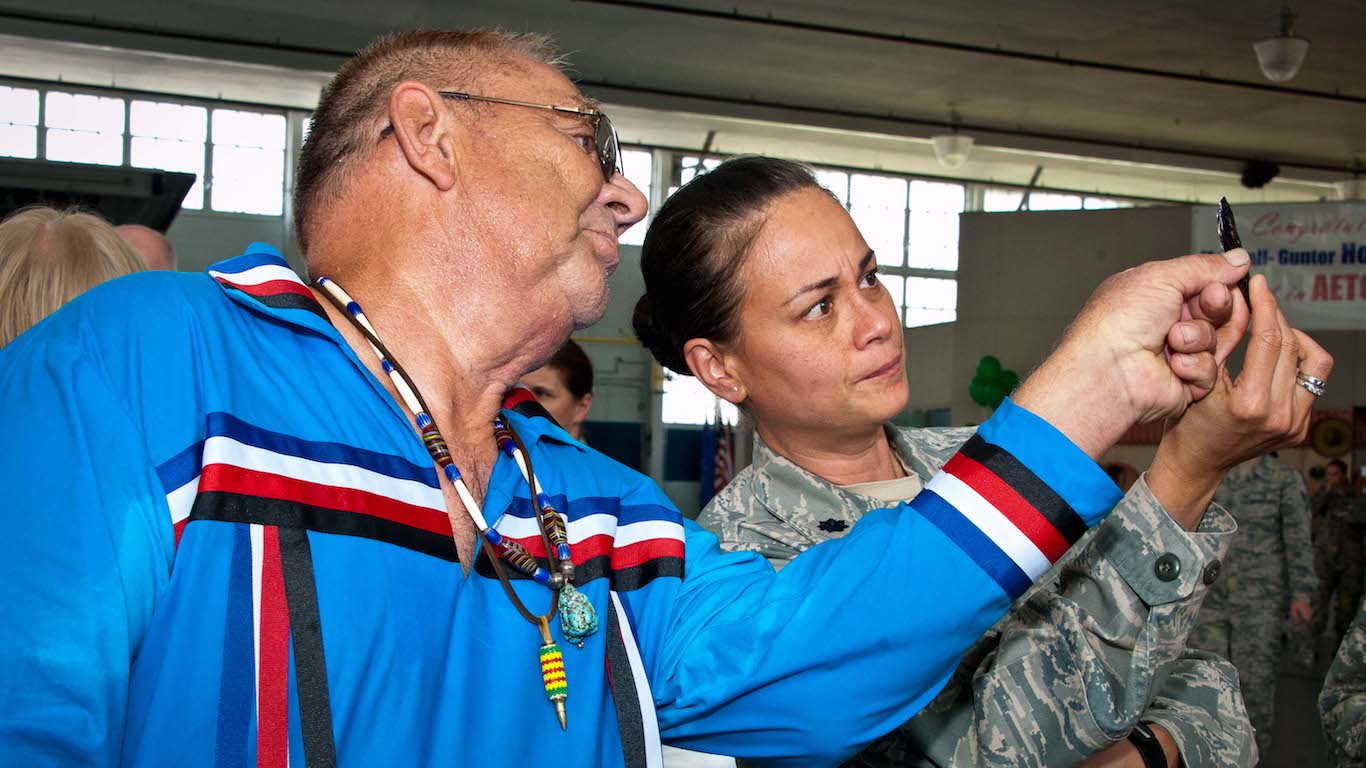
30. Alabama
> State residents who self-identify as American Indian: 1.27% (61,383)
> Largest Native American group: Cherokee (27,330)
> Total state population: 4,841,164 (23rd highest)
[in-text-ad]
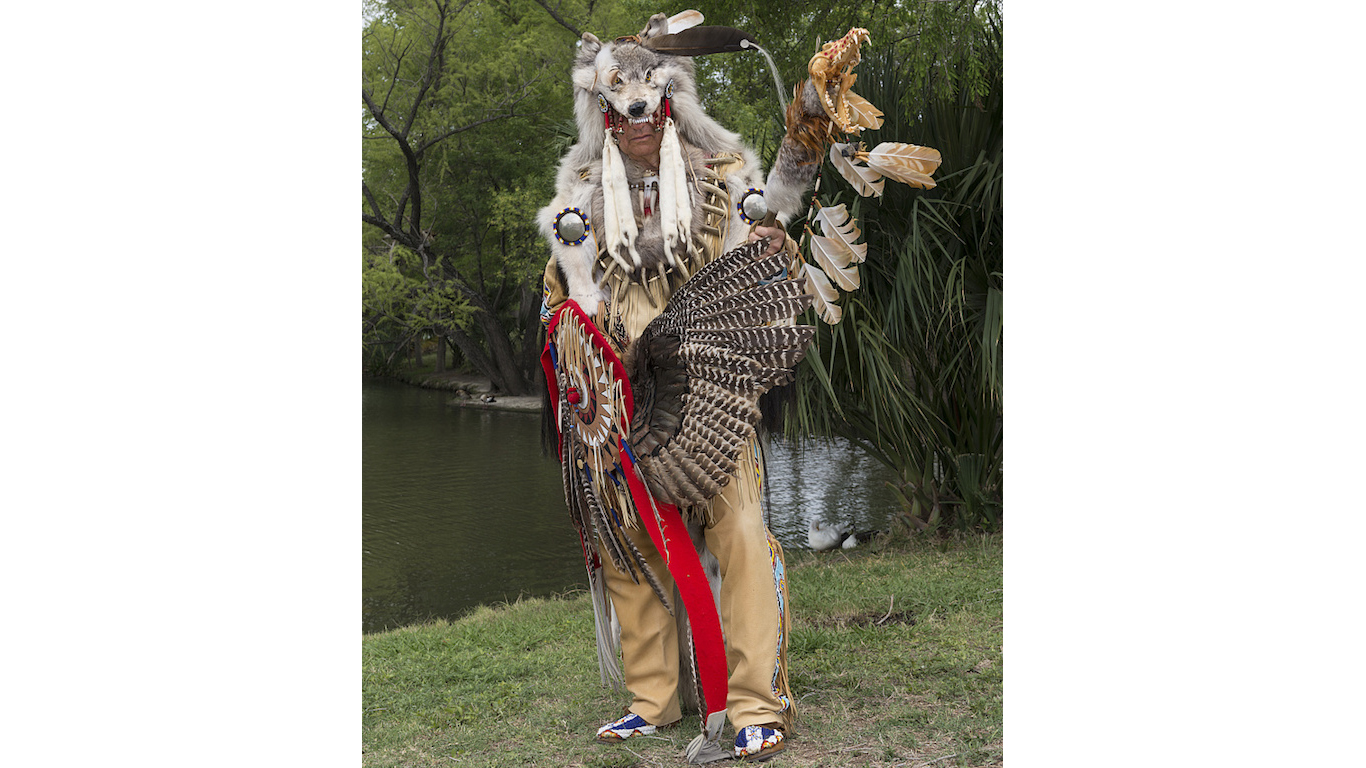
29. Texas
> State residents who self-identify as American Indian: 1.28% (344,565)
> Largest Native American group: Cherokee (79,468)
> Total state population: 26,956,435 (2nd highest)
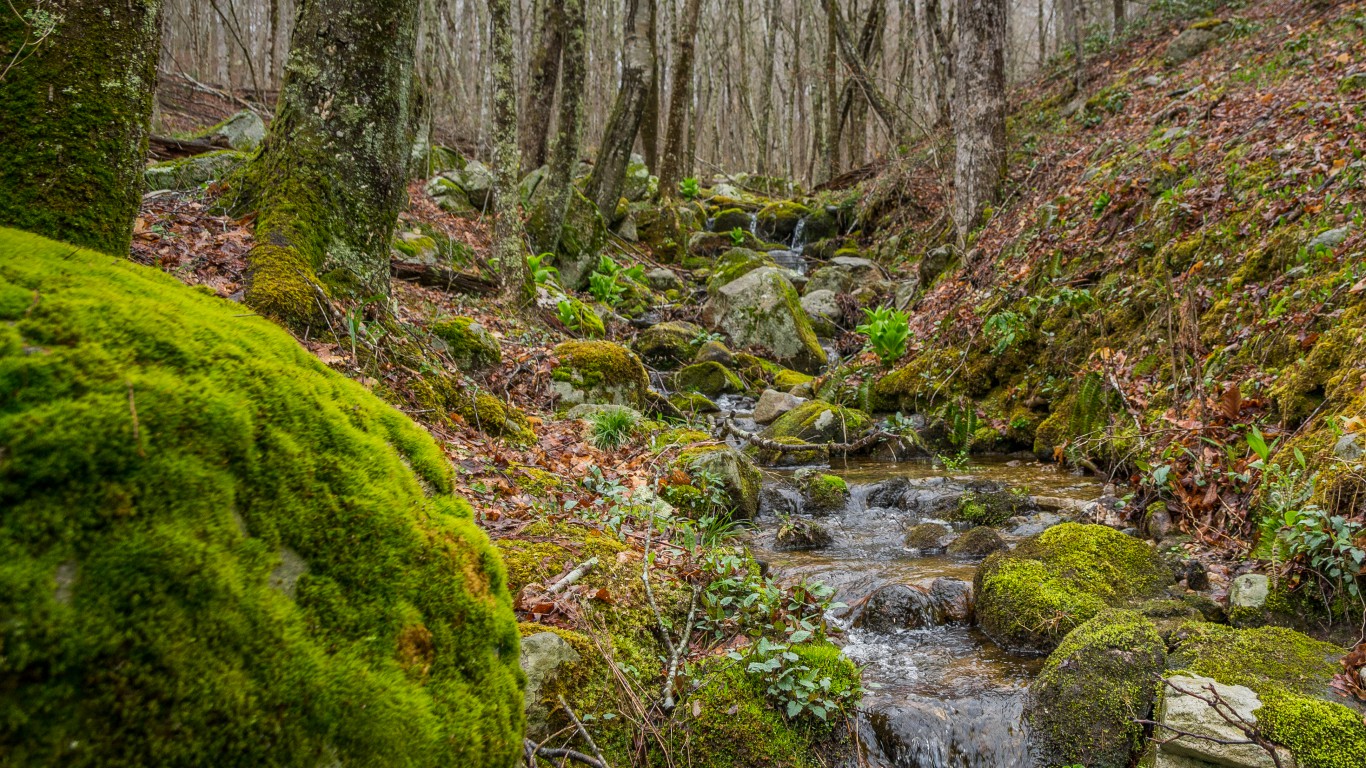
28. Rhode Island
> State residents who self-identify as American Indian: 1.32% (13,959)
> Largest Native American group: Cherokee (1,557)
> Total state population: 1,054,491 (8th lowest)
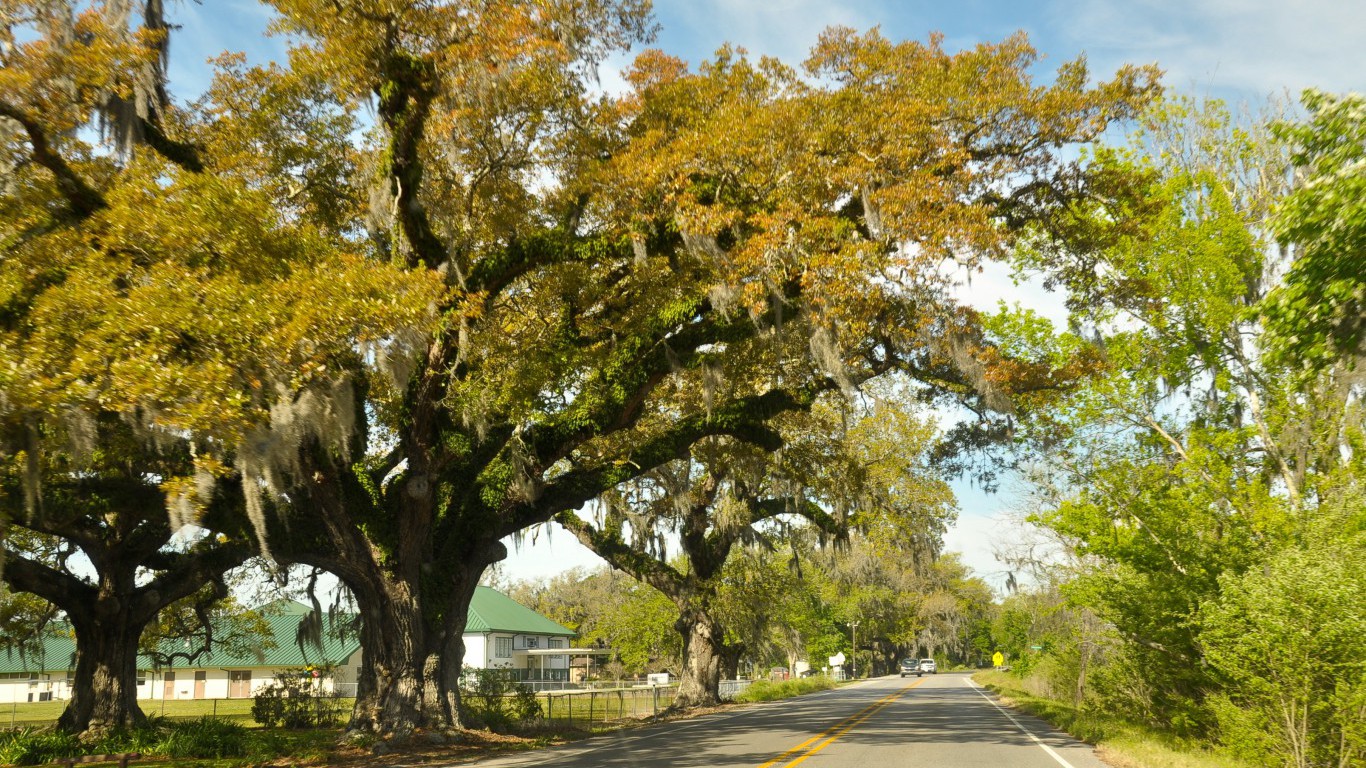
27. Louisiana
> State residents who self-identify as American Indian: 1.33% (61,602)
> Largest Native American group: Houma (12,392)
> Total state population: 4,645,670 (25th highest)
[in-text-ad-2]
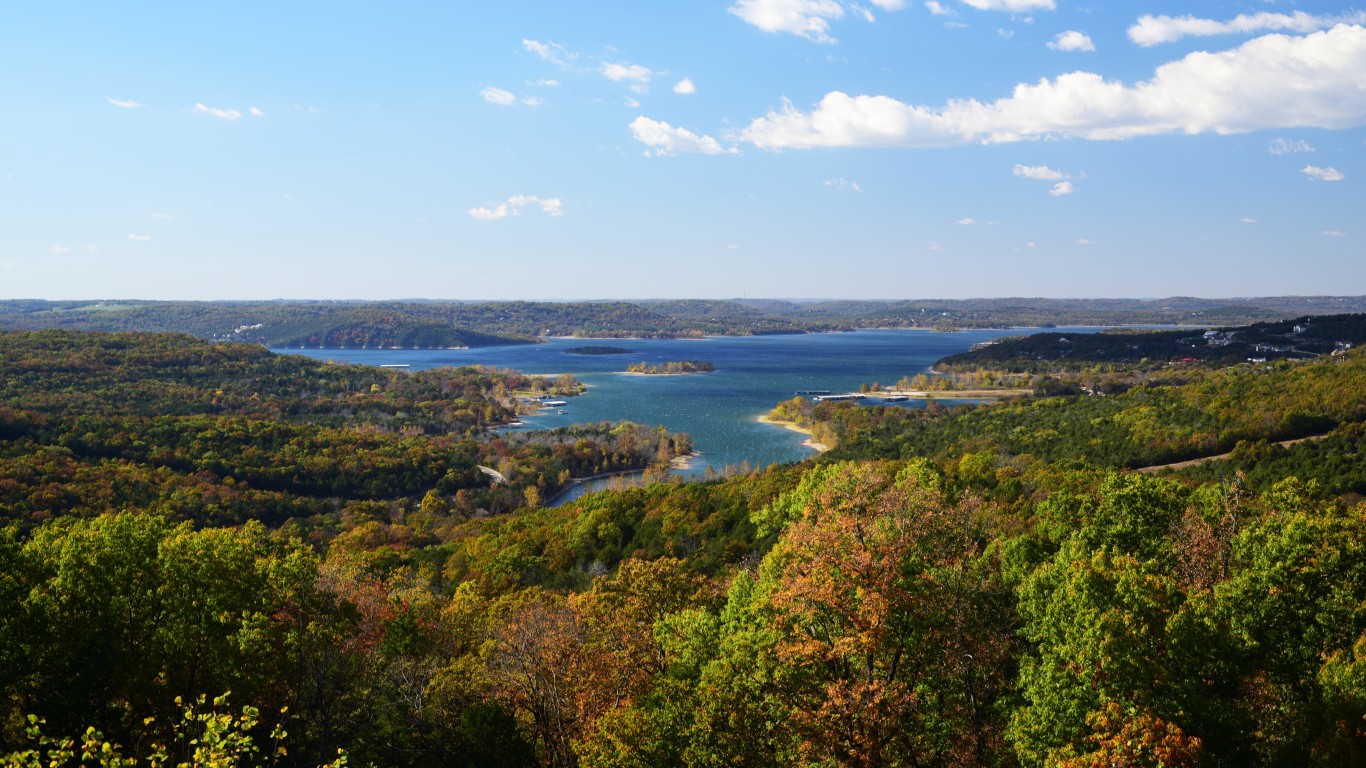
26. Missouri
> State residents who self-identify as American Indian: 1.38% (83,629)
> Largest Native American group: Cherokee (33,908)
> Total state population: 6,059,651 (18th highest)
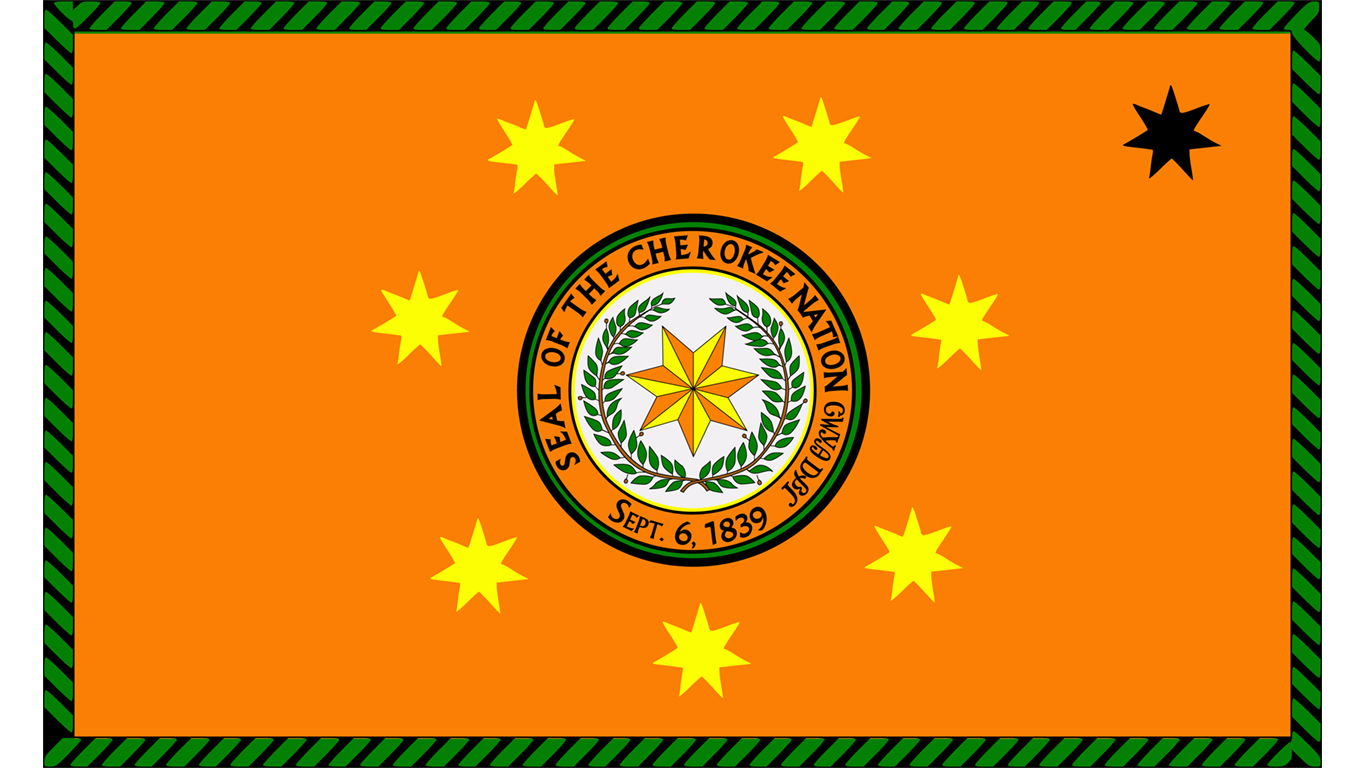
25. Vermont
> State residents who self-identify as American Indian: 1.39% (8,697)
> Largest Native American group: Cherokee (1,011)
> Total state population: 626,249 (2nd lowest)
[in-text-ad]
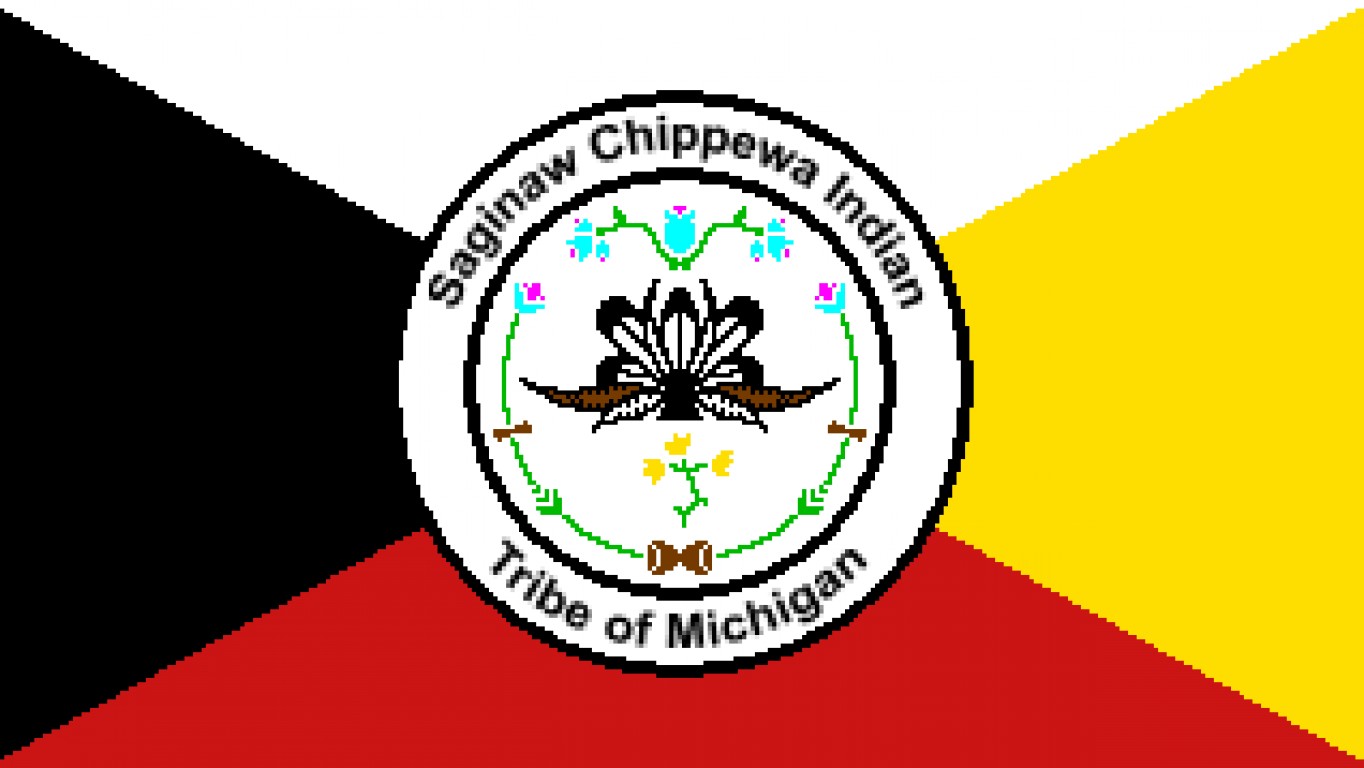
24. Michigan
> State residents who self-identify as American Indian: 1.55% (153,750)
> Largest Native American group: Chippewa (39,441)
> Total state population: 9,909,600 (10th highest)
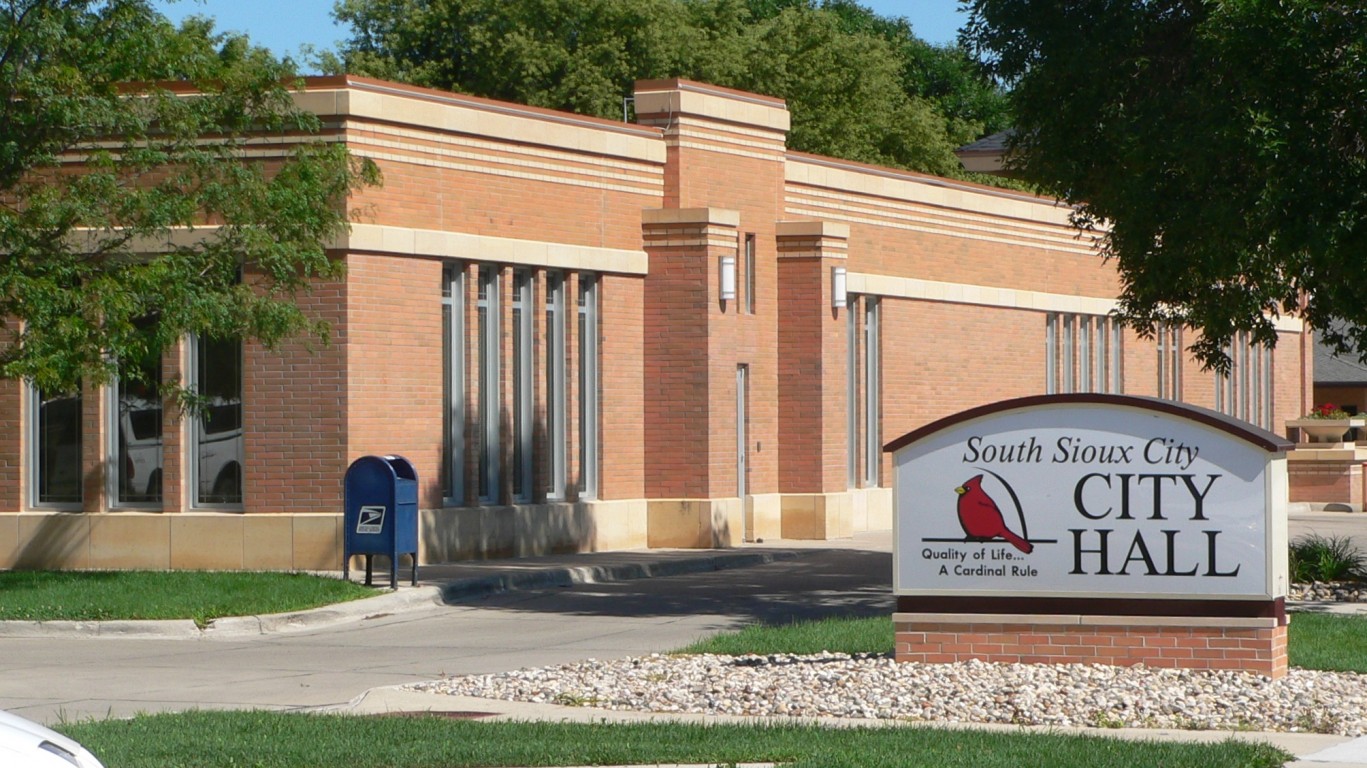
23. Nebraska
> State residents who self-identify as American Indian: 1.63% (30,632)
> Largest Native American group: Sioux (7,434)
> Total state population: 1,881,259 (14th lowest)
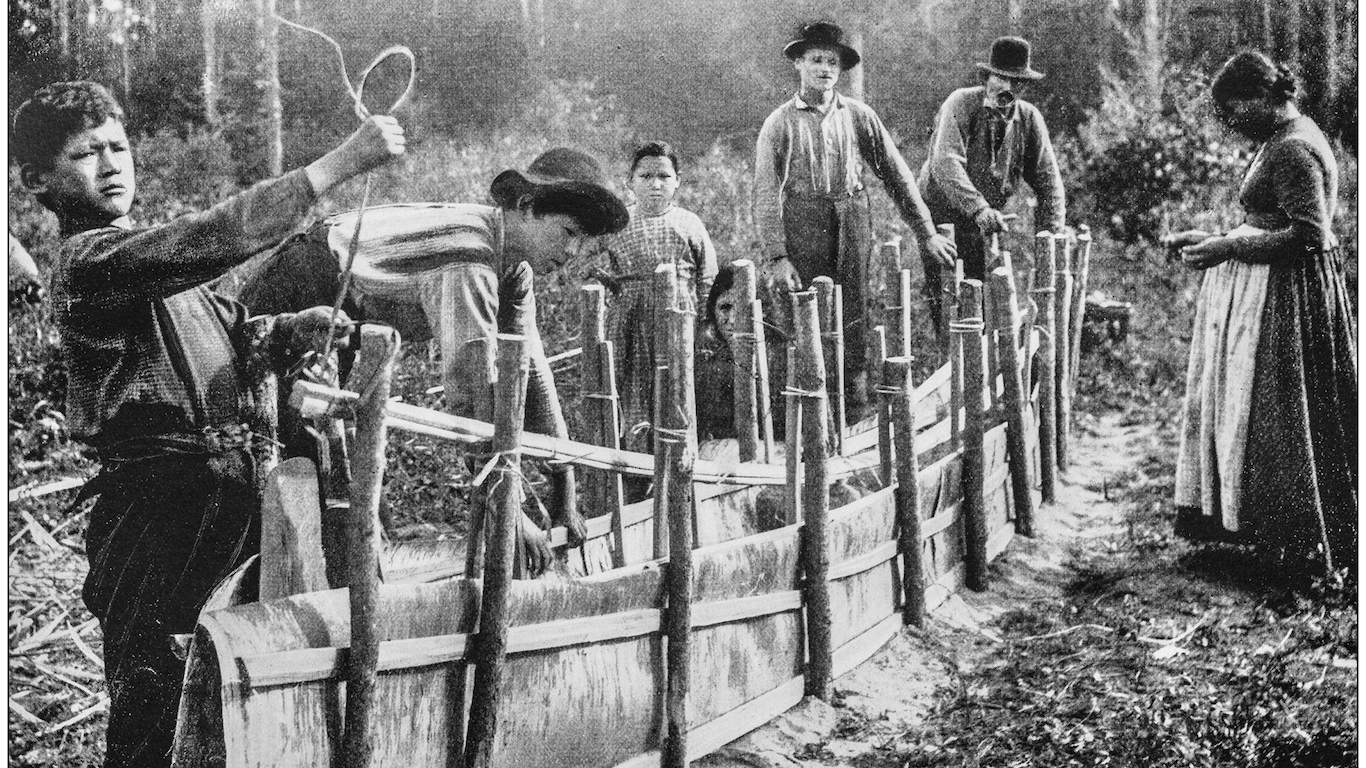
22. Wisconsin
> State residents who self-identify as American Indian: 1.67% (96,315)
> Largest Native American group: Chippewa (23,335)
> Total state population: 5,754,798 (20th highest)
[in-text-ad-2]
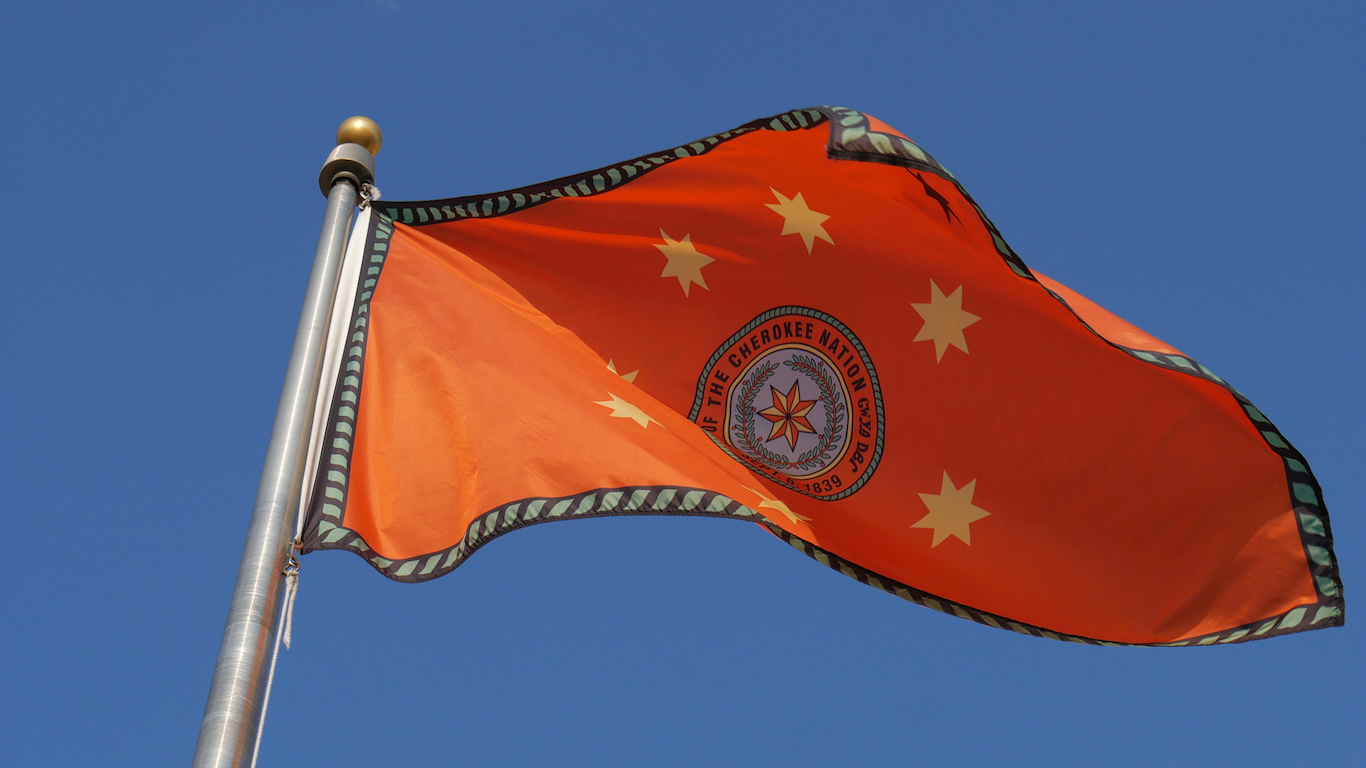
21. Maine
> State residents who self-identify as American Indian: 1.71% (22,706)
> Largest Native American group: Cherokee (1,738)
> Total state population: 1,329,923 (10th lowest)

20. Arkansas
> State residents who self-identify as American Indian: 1.78% (52,927)
> Largest Native American group: Cherokee (25,947)
> Total state population: 2,968,472 (19th lowest)
[in-text-ad]
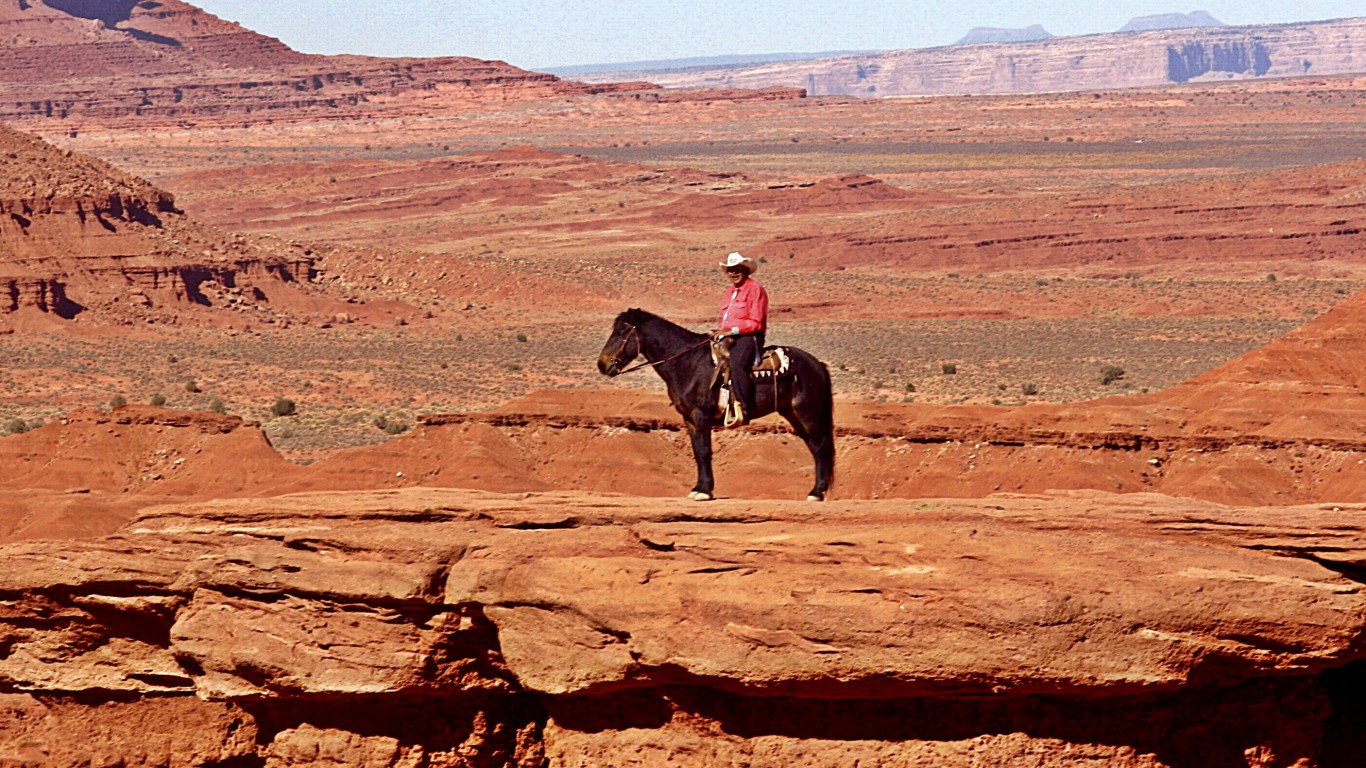
19. Utah
> State residents who self-identify as American Indian: 1.80% (53,052)
> Largest Native American group: Navajo (19,539)
> Total state population: 2,948,427 (18th lowest)
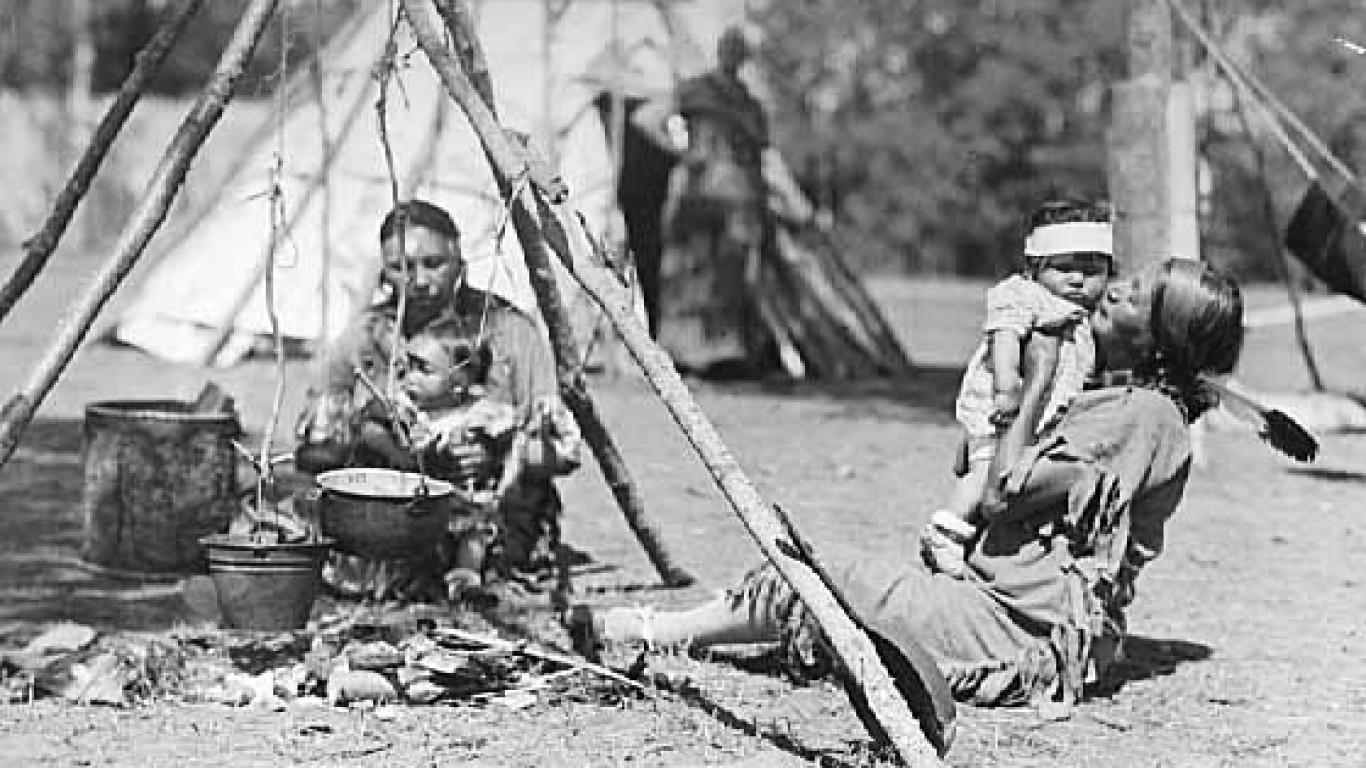
18. Minnesota
> State residents who self-identify as American Indian: 1.92% (104,514)
> Largest Native American group: Chippewa (51,394)
> Total state population: 5,450,868 (21st highest)
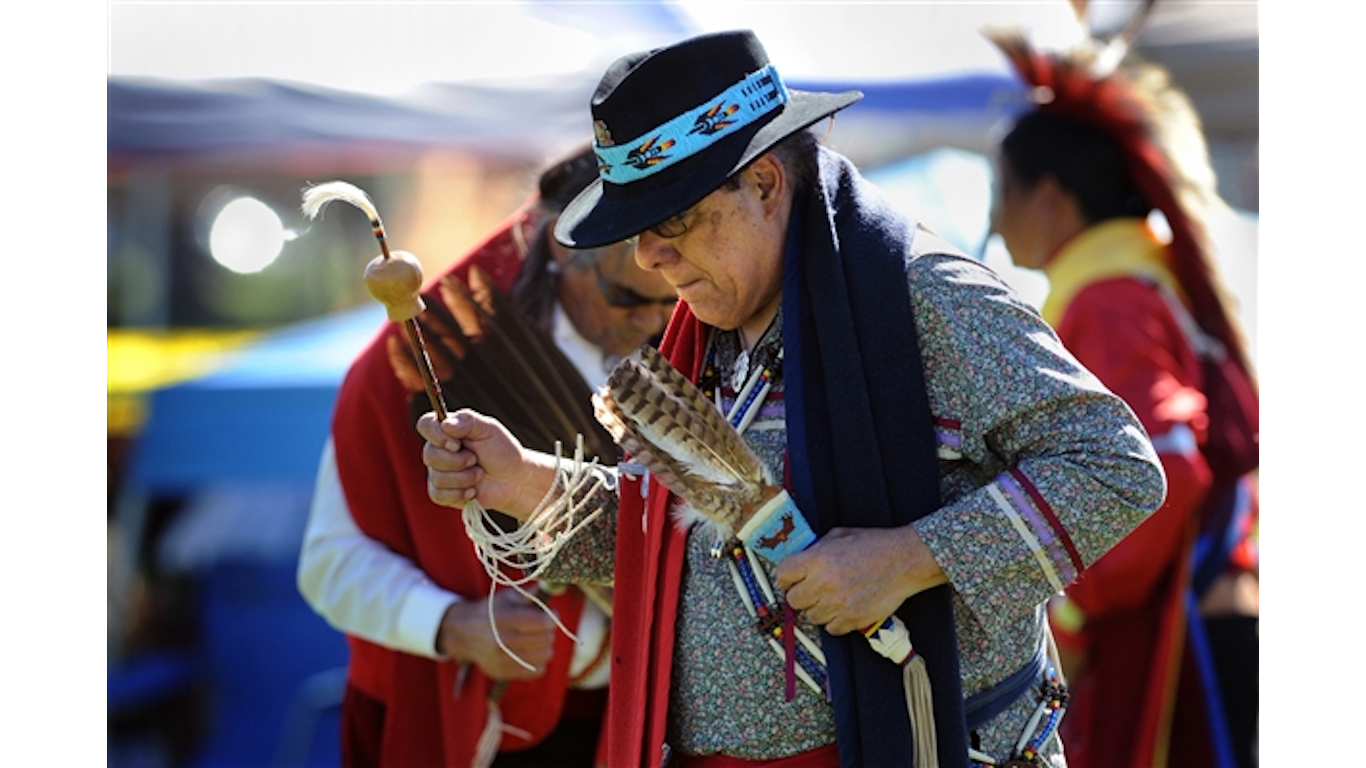
17. California
> State residents who self-identify as American Indian: 1.97% (762,617)
> Largest Native American group: Cherokee (127,218)
> Total state population: 38,654,206 (the highest)
[in-text-ad-2]
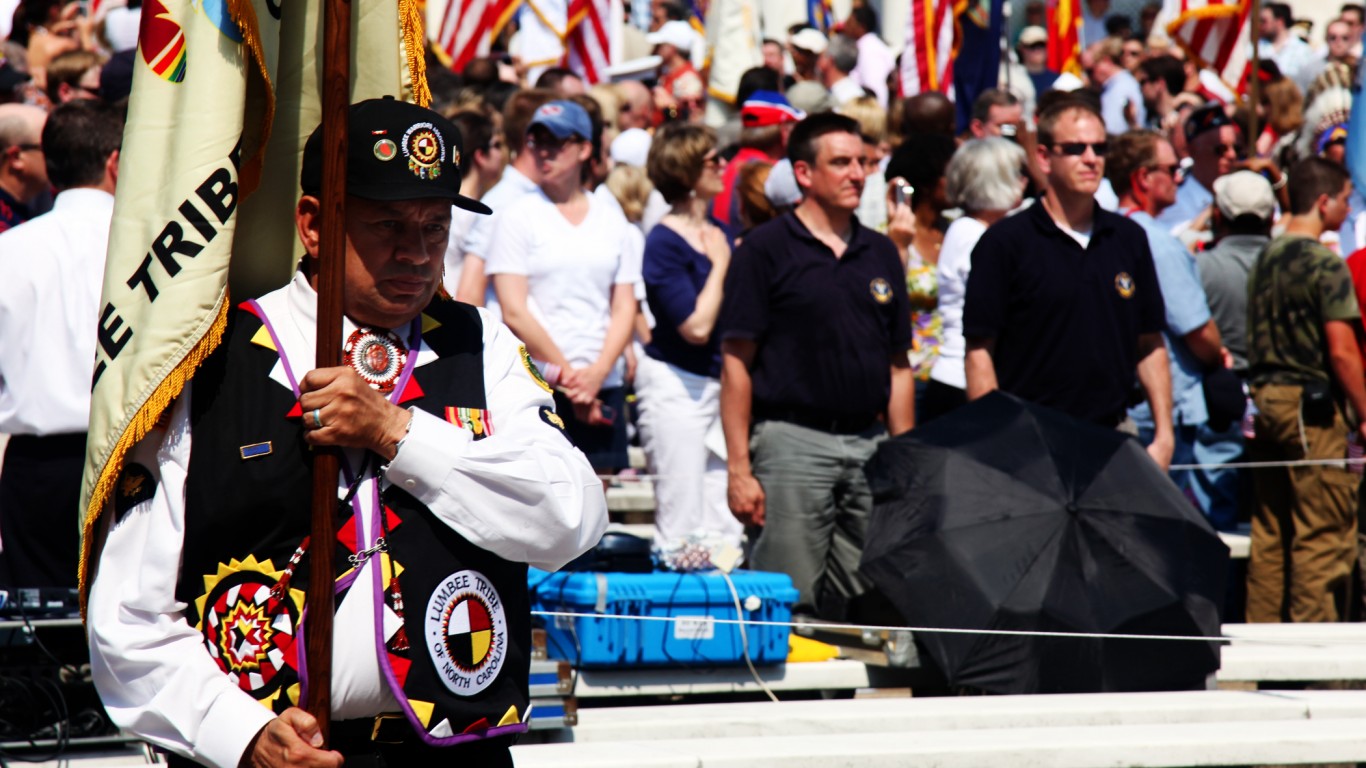
16. North Carolina
> State residents who self-identify as American Indian: 2.00% (199,213)
> Largest Native American group: Lumbee (70,529)
> Total state population: 9,940,828 (9th highest)
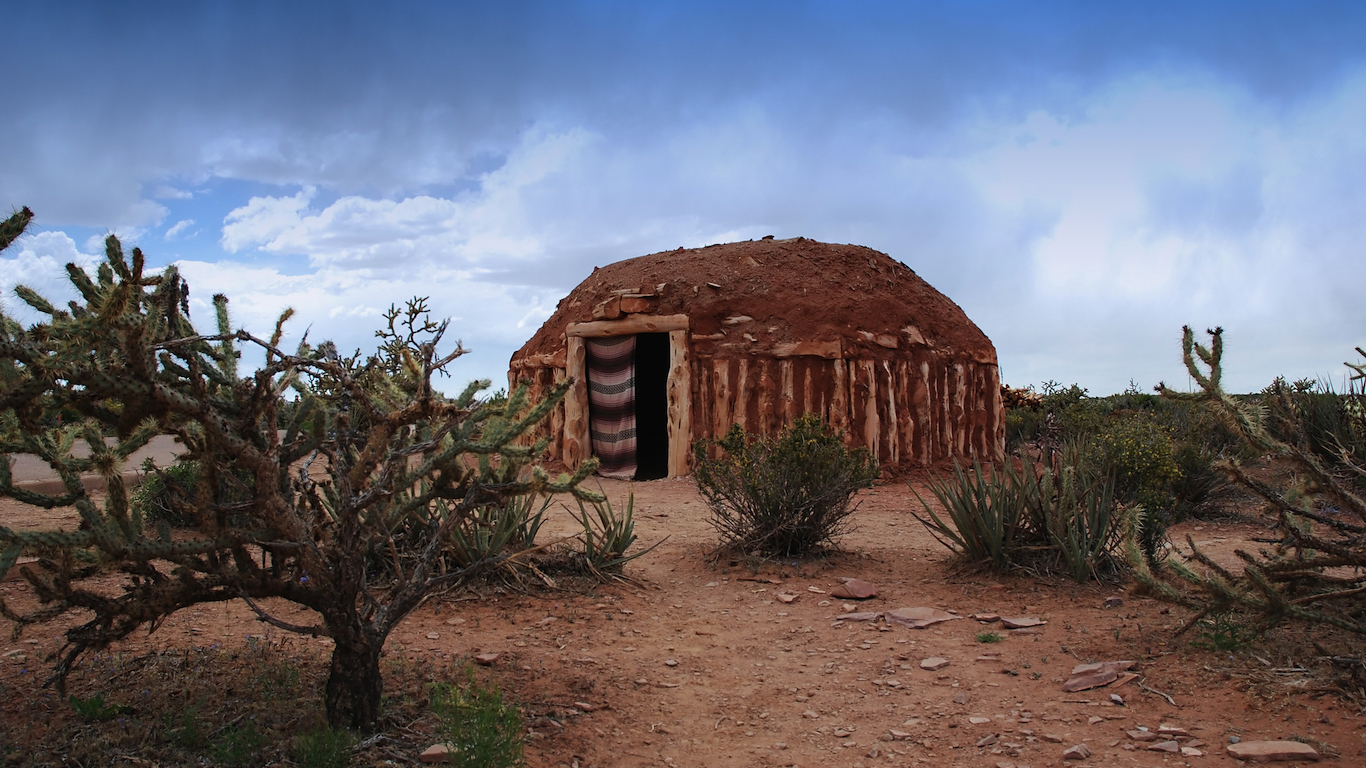
15. Nevada
> State residents who self-identify as American Indian: 2.10% (59,611)
> Largest Native American group: Cherokee (8,290)
> Total state population: 2,839,172 (16th lowest)
[in-text-ad]
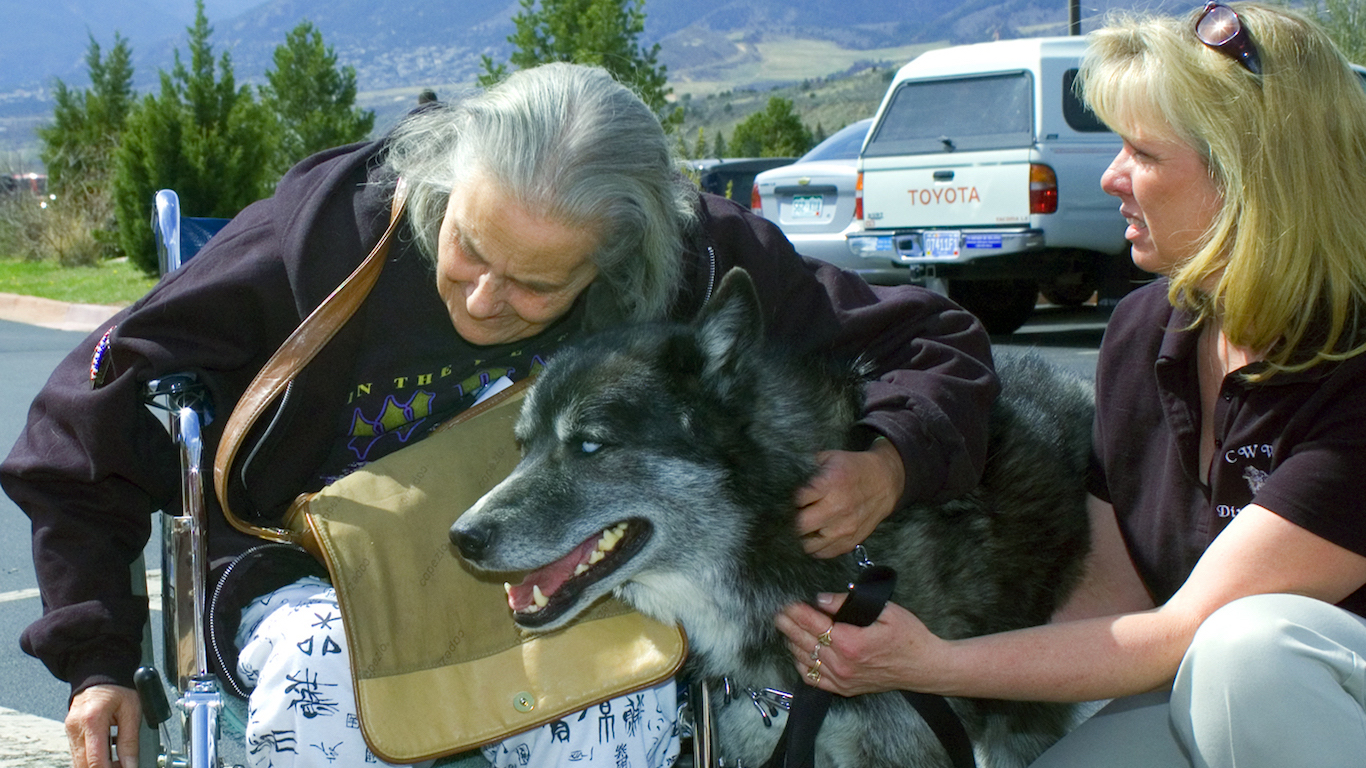
14. Colorado
> State residents who self-identify as American Indian: 2.18% (116,673)
> Largest Native American group: Cherokee (20,652)
> Total state population: 5,359,295 (22nd highest)
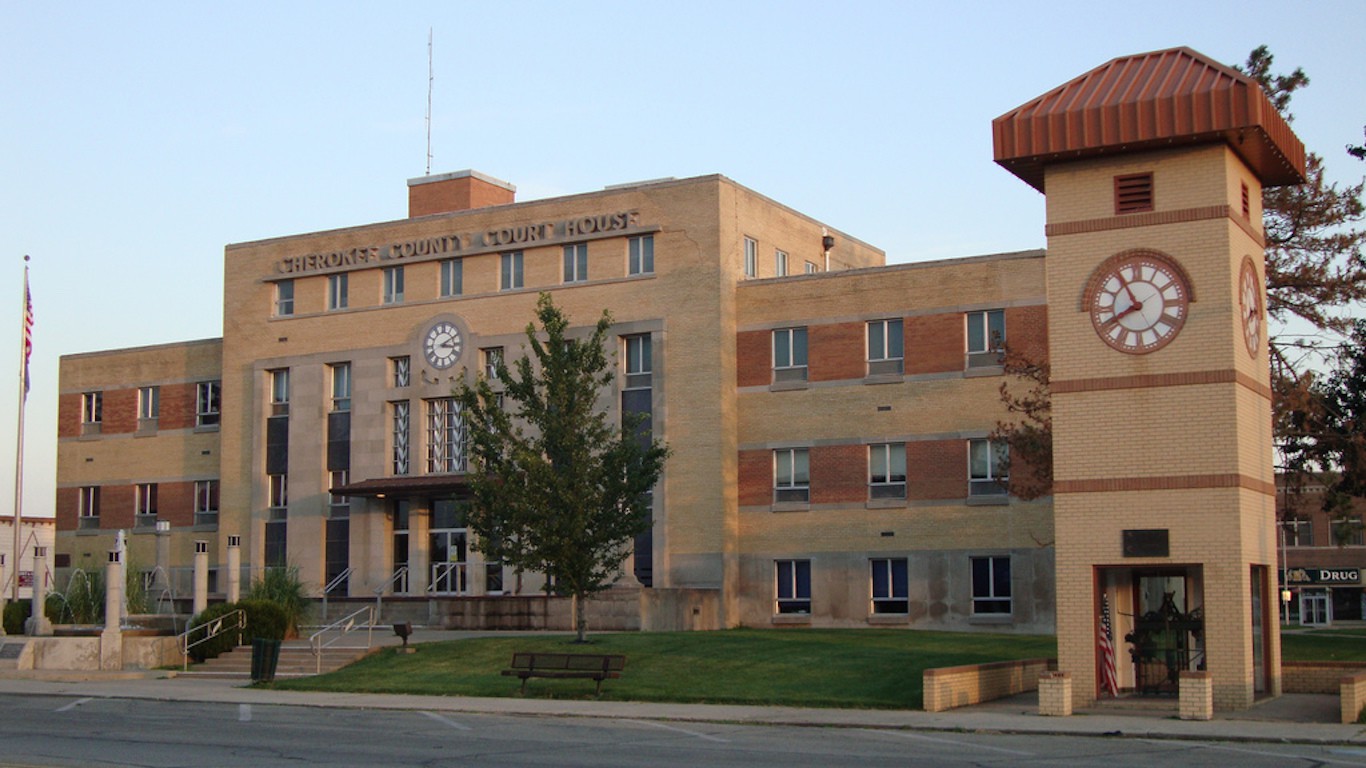
13. Kansas
> State residents who self-identify as American Indian: 2.19% (63,437)
> Largest Native American group: Cherokee (20,054)
> Total state population: 2,898,292 (17th lowest)
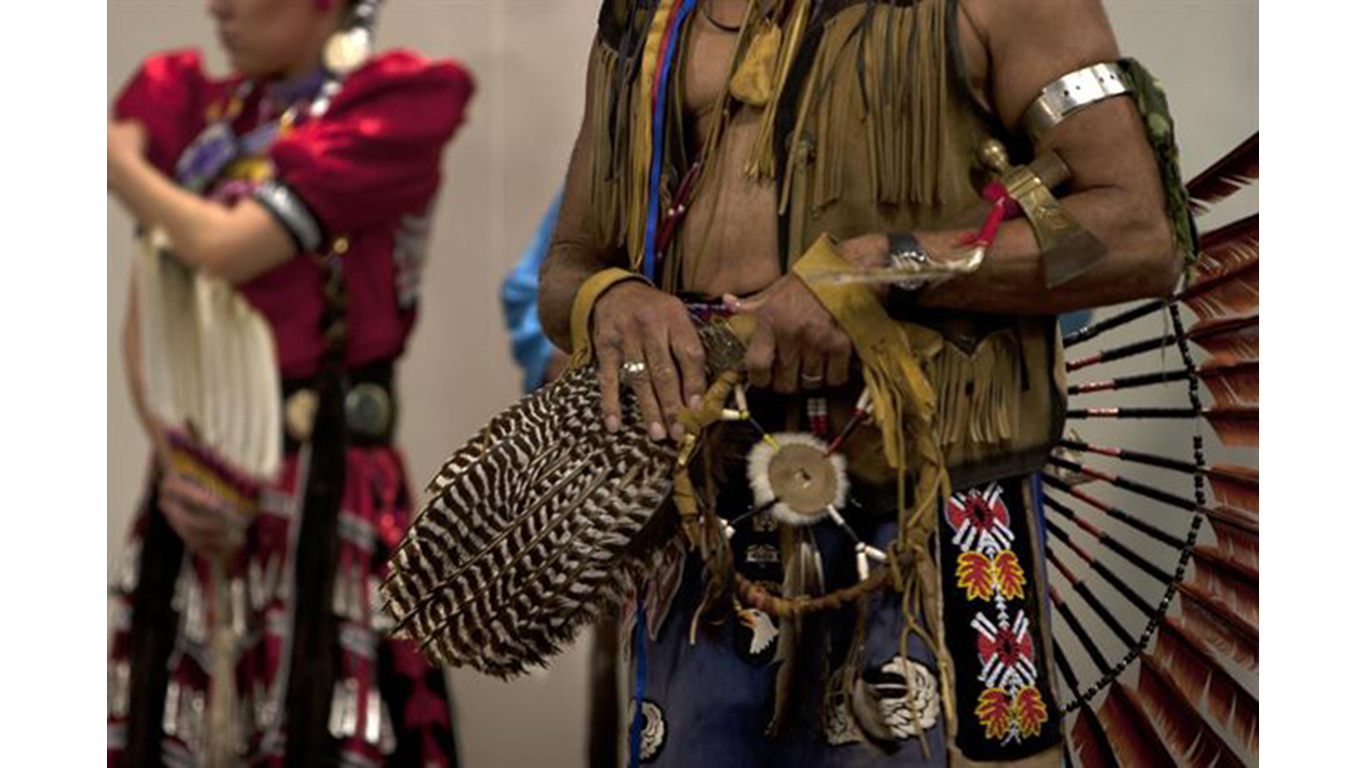
12. Hawaii
> State residents who self-identify as American Indian: 2.41% (34,051)
> Largest Native American group: Cherokee (10,958)
> Total state population: 1,413,673 (11th lowest)
[in-text-ad-2]
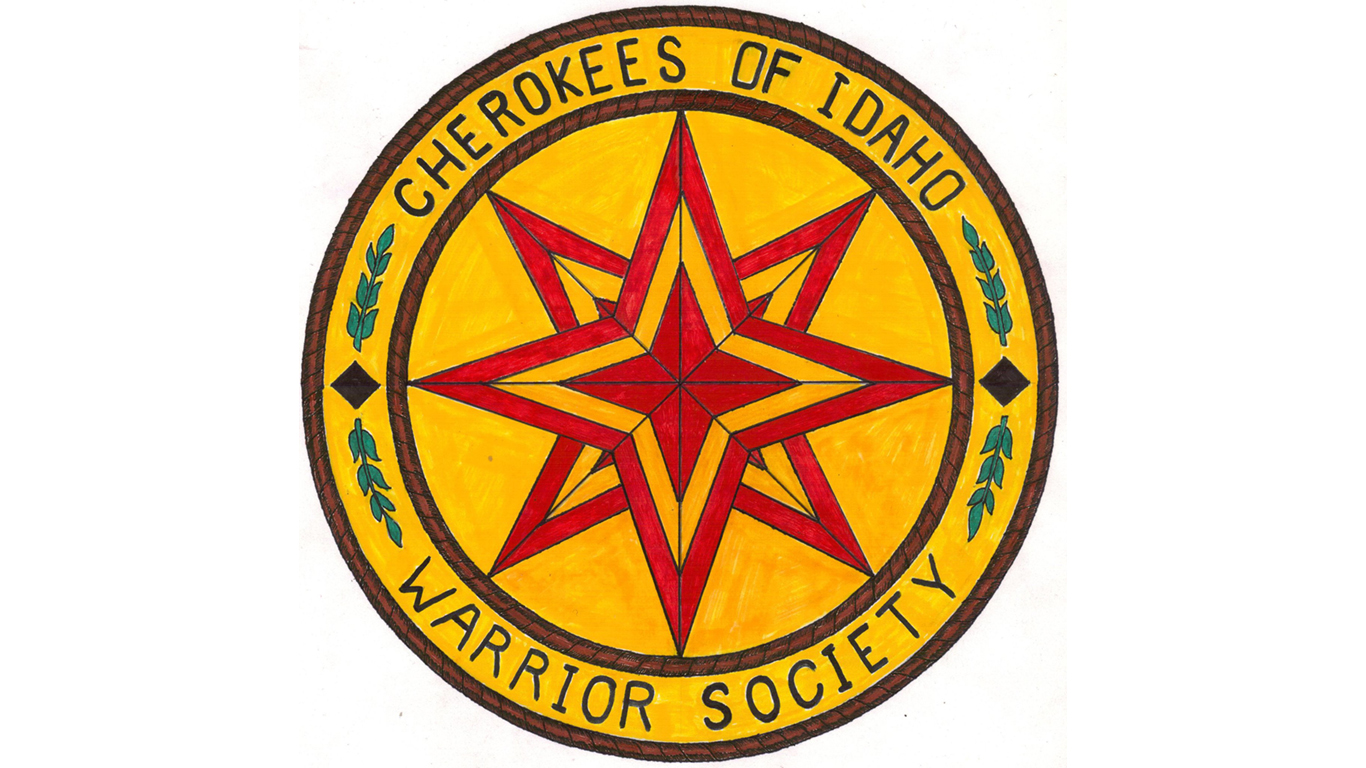
11. Idaho
> State residents who self-identify as American Indian: 2.52% (41,147)
> Largest Native American group: Cherokee (5,539)
> Total state population: 1,635,483 (12th lowest)
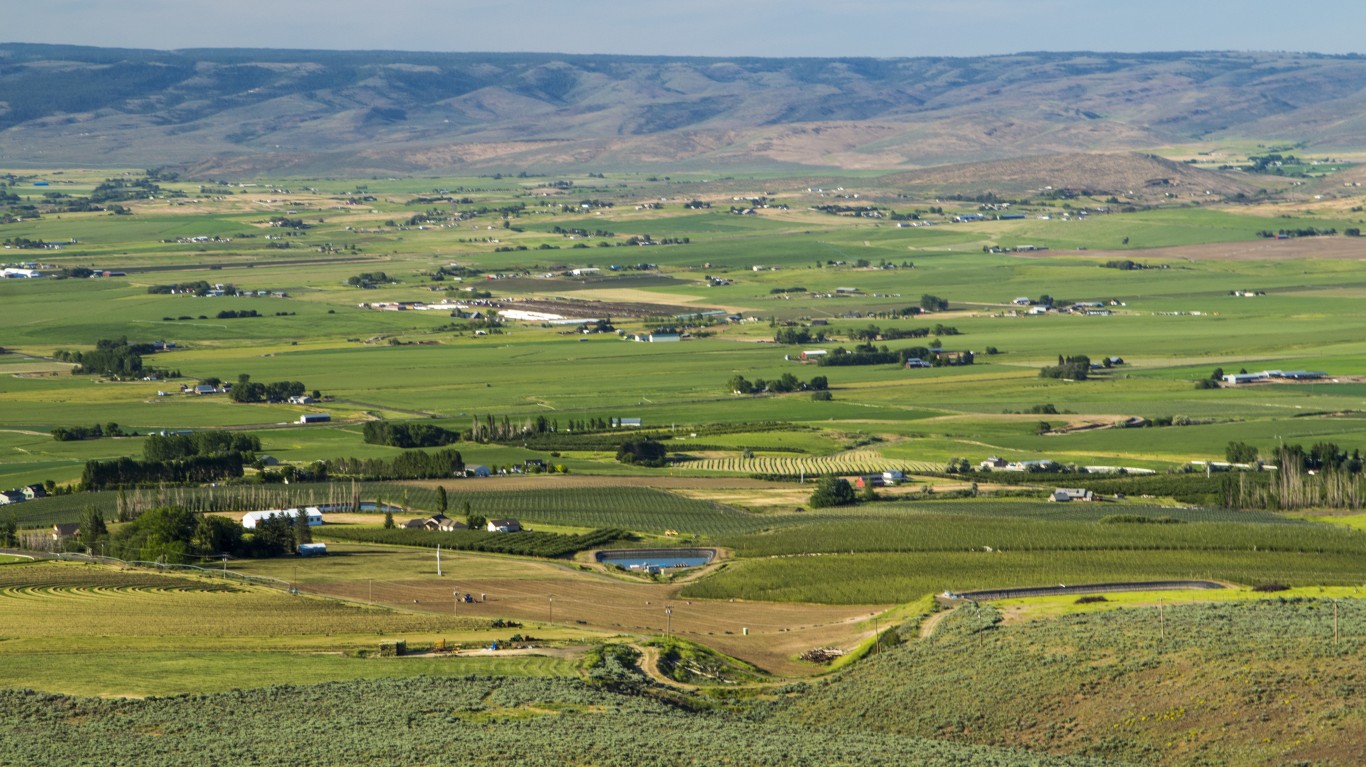
10. Washington
> State residents who self-identify as American Indian: 3.12% (220,427)
> Largest Native American group: Cherokee (28,241)
> Total state population: 7,073,146 (13th highest)
[in-text-ad]
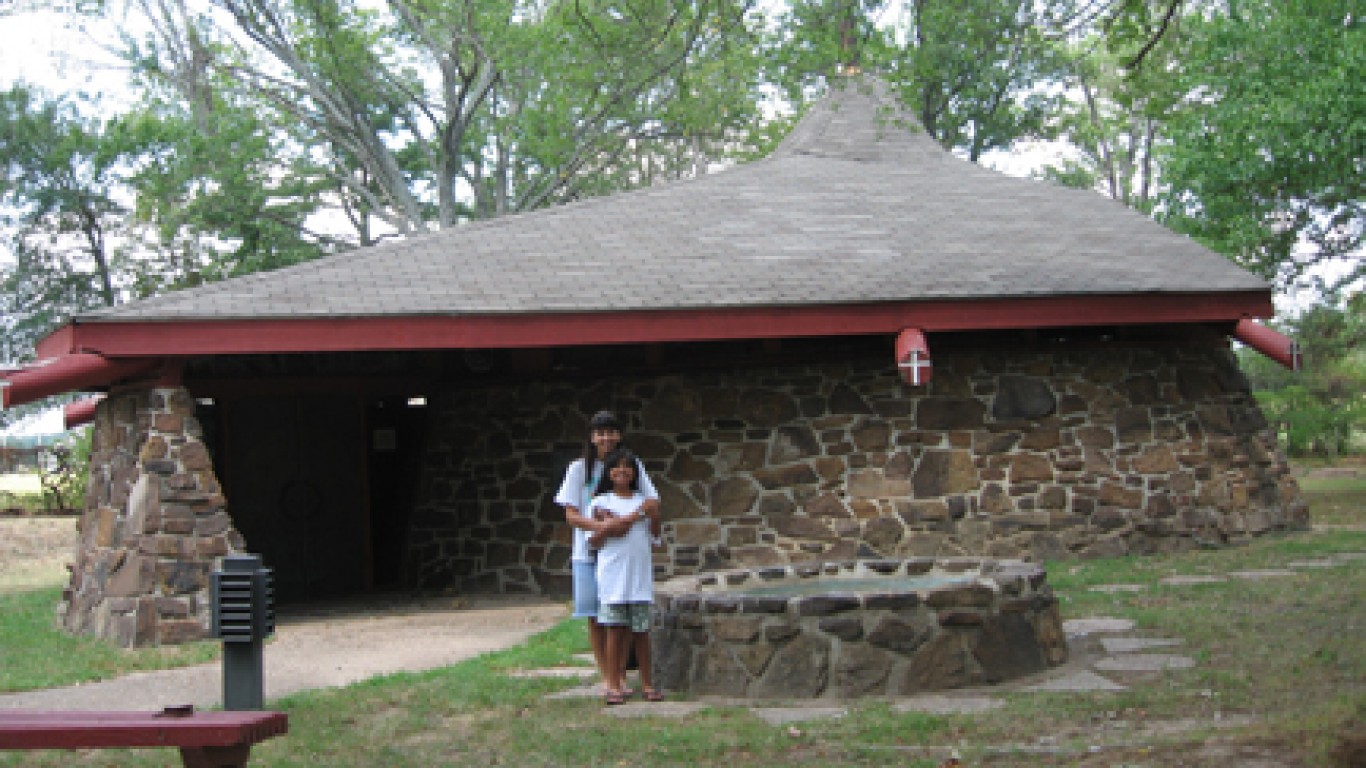
9. Oregon
> State residents who self-identify as American Indian: 3.23% (128,631)
> Largest Native American group: Cherokee (21,872)
> Total state population: 3,982,267 (24th lowest)
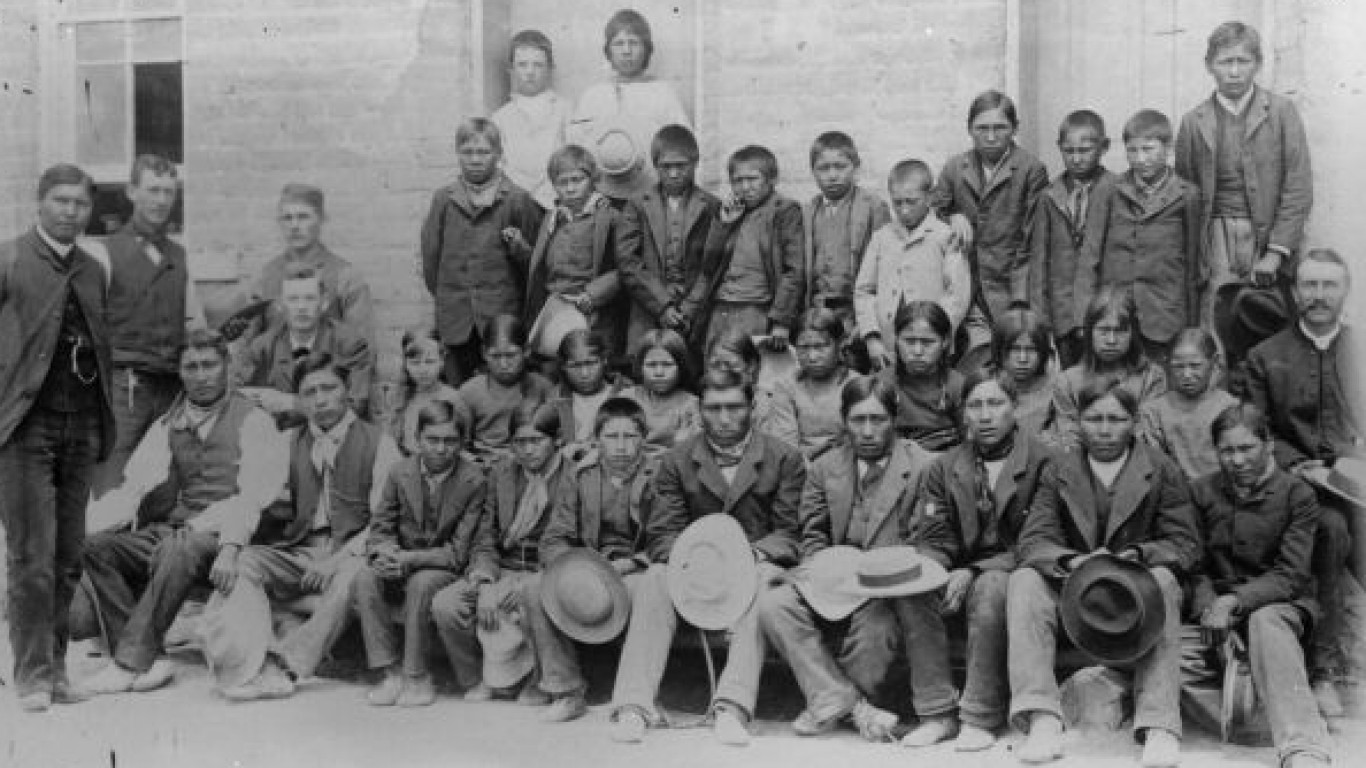
8. Wyoming
> State residents who self-identify as American Indian: 3.78% (22,028)
> Largest Native American group: Arapaho (5,779)
> Total state population: 583,029 (the lowest)
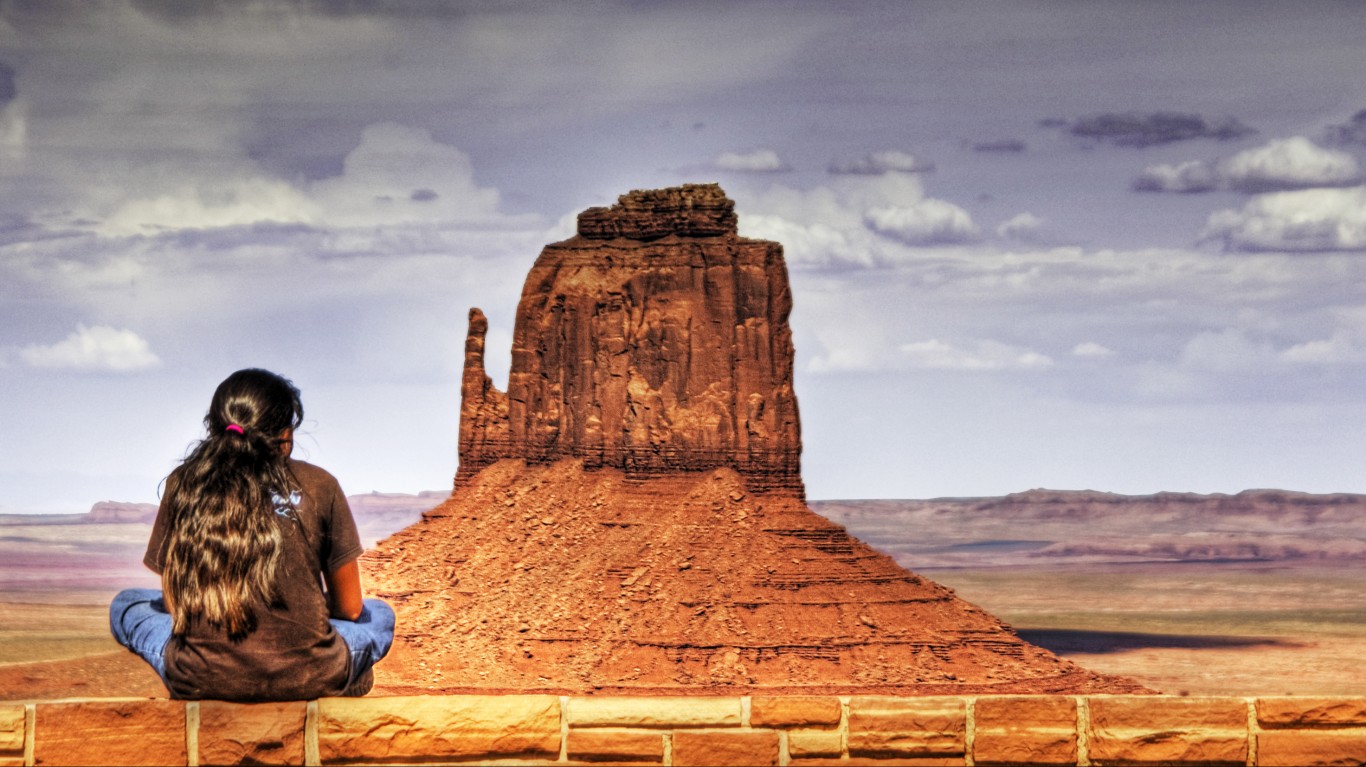
7. Arizona
> State residents who self-identify as American Indian: 5.62% (377,995)
> Largest Native American group: Navajo (159,513)
> Total state population: 6,728,577 (15th highest)
[in-text-ad-2]
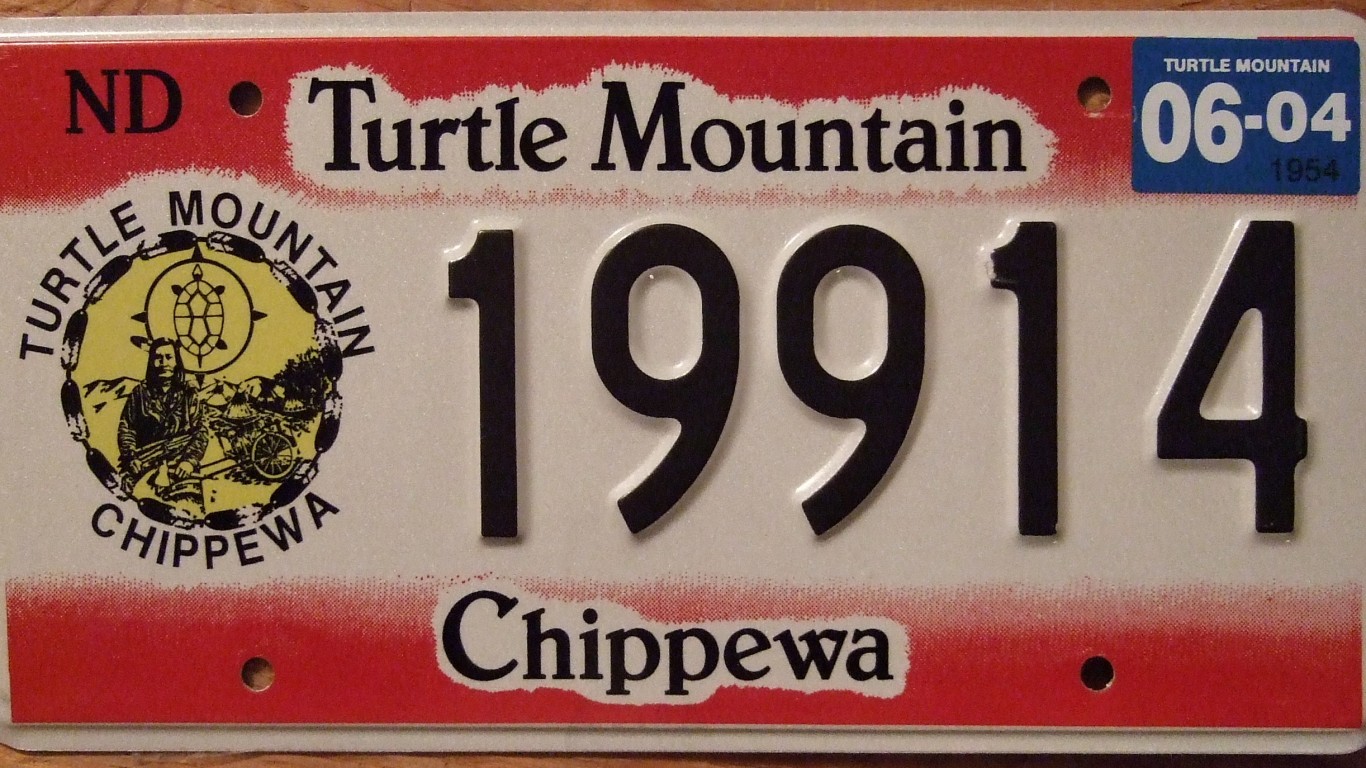
6. North Dakota
> State residents who self-identify as American Indian: 6.61% (48,686)
> Largest Native American group: Chippewa (19,913)
> Total state population: 736,162 (3rd lowest)
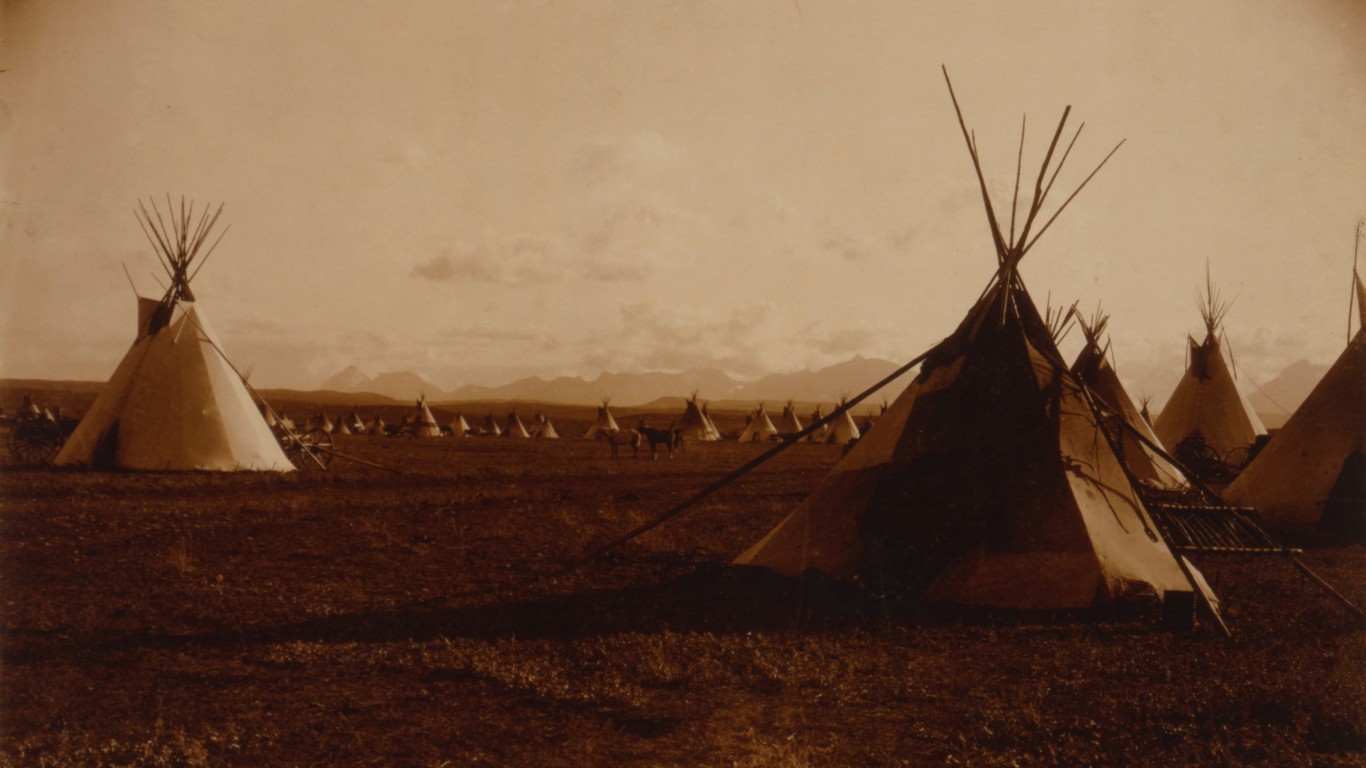
5. Montana
> State residents who self-identify as American Indian: 8.33% (85,285)
> Largest Native American group: Blackfeet (14,095)
> Total state population: 1,023,391 (7th lowest)
[in-text-ad]

4. South Dakota
> State residents who self-identify as American Indian: 10.31% (87,776)
> Largest Native American group: Sioux (72,513)
> Total state population: 851,058 (5th lowest)
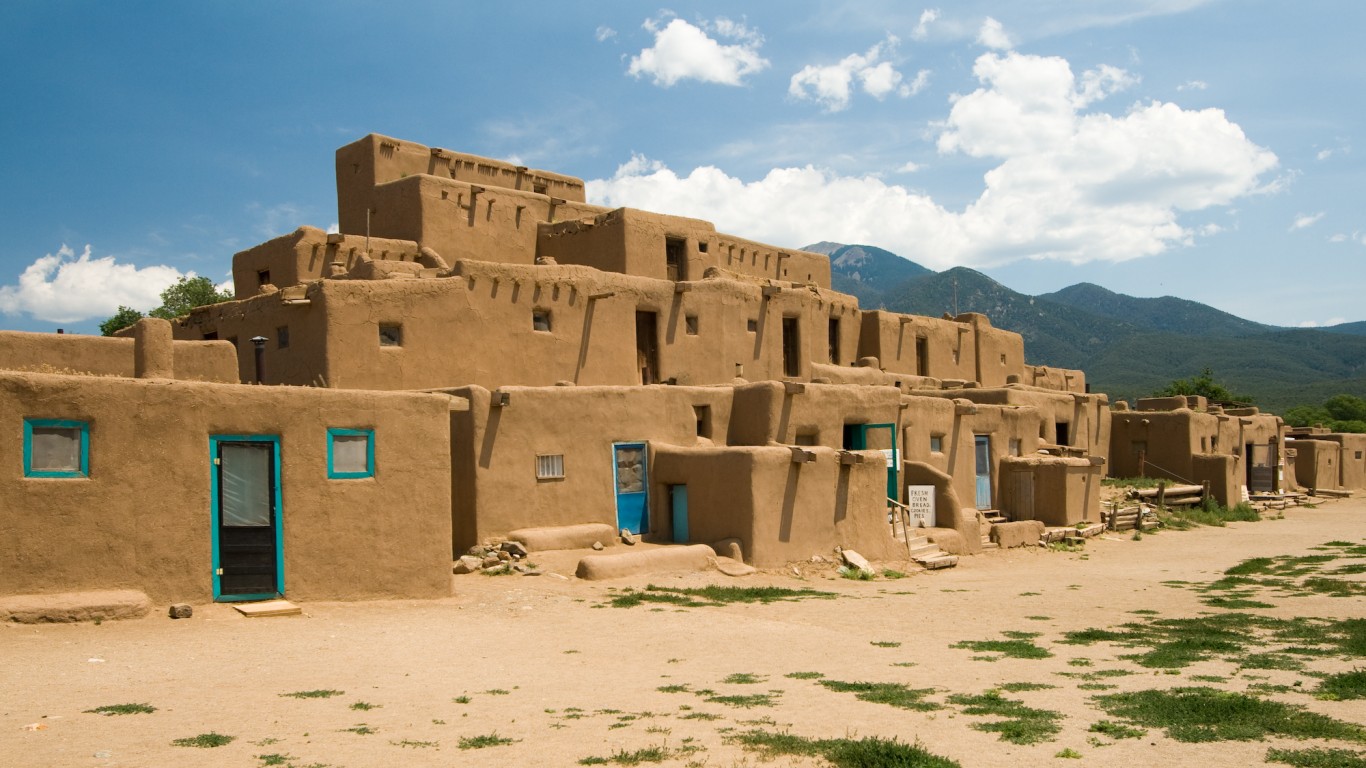
3. New Mexico
> State residents who self-identify as American Indian: 10.70% (222,818)
> Largest Native American group: Navajo (124,567)
> Total state population: 2,082,669 (15th lowest)
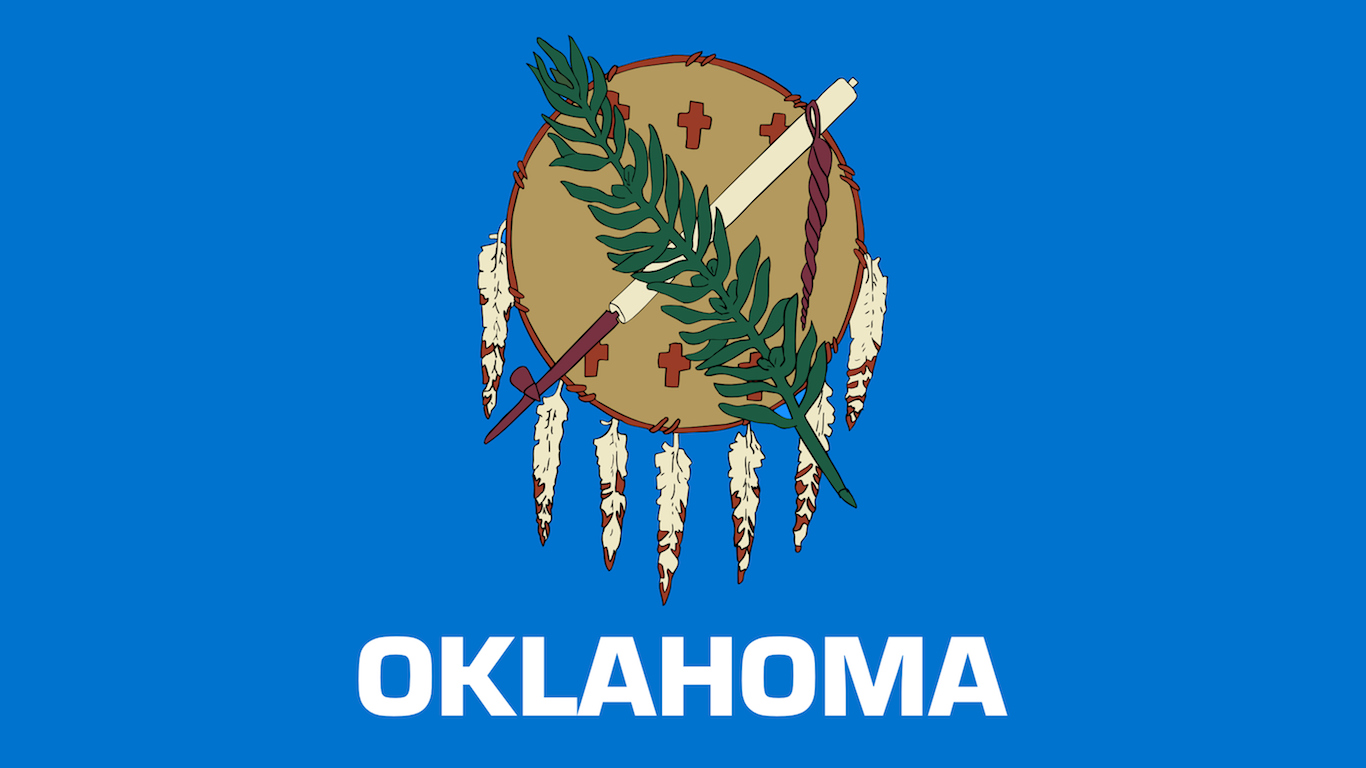
2. Oklahoma
> State residents who self-identify as American Indian: 13.97% (541,411)
> Largest Native American group: Cherokee (218,586)
> Total state population: 3,875,589 (23rd lowest)
[in-text-ad-2]
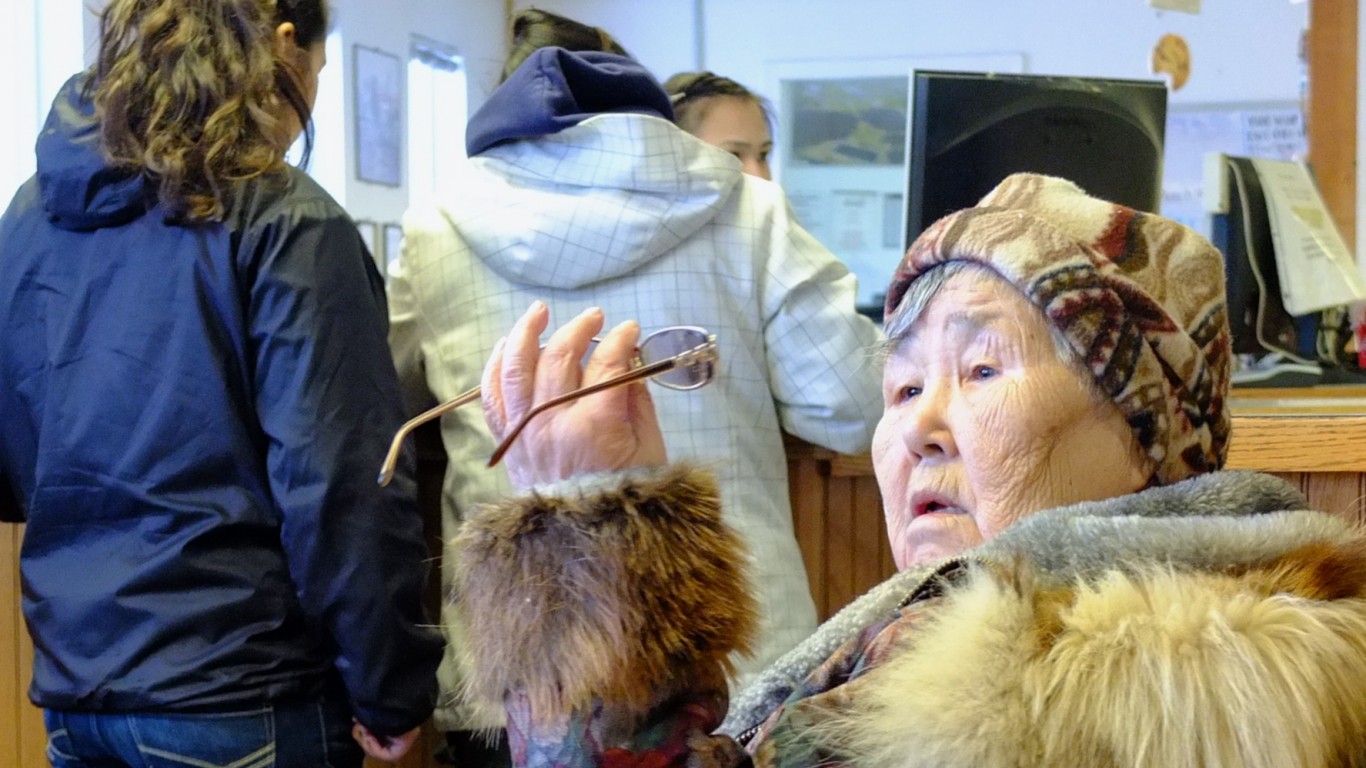
1. Alaska
> State residents who self-identify as American Indian: 20.15% (148,468)
> Largest Native American group: Yup’ik (38,980)
> Total state population: 736,855 (4th lowest)
Detailed Findings & Methodology
Today, Beck said that more than 70% of Native Americans live in urban areas. There is a heavy concentration of Native Americans living in Oklahoma now, primarily those who identify as Cherokee, in comparison with most other contiguous states. A lot of people who identify as Cherokee, Creek, Choctaw, Chickasaw, and Seminole still live there today, as it was the endpoint of the Trail of Tears.
Members of those five groups were forcibly removed from their ancestral lands after the Indian Removal Act took place in 1830, which required all American Indians to move west of the Mississippi River either by foot or boat. The dreaded walk took the lives of 4,000 Cherokee members.
According to the Census, of the 5.6 million people who self-identify as having at least some Native American heritage, about 1.1 million people claim their ancestry is Cherokee. Next, over 374,000 people identify as Navajo.
One can self-identify as having a specific Native American heritage without being an active member of that tribe or nation. As Beck pointed out, there are even some people who know they have Native American roots but are not exactly sure from which tribe or nation.
“There is a much larger awareness of Cherokee people than there is of others,” said Beck. Small communities of Native Americans living in the West, primarily in Oklahoma and parts of Arkansas, may only have knowledge of their roots through oral histories passed down from generation to generation, Beck explained.
“Oftentimes, it’s nothing more than stories. So there’s actually a lot of people who identify as Cherokee who may or may not have had a Cherokee ancestor, but who claim that,” said Beck.
24/7 Wall St. reviewed population data across the country using the U.S. Census Bureau’s 2016 5-year American Community Survey to identify the states with the the largest share of the population who self-identify as Native American or report having Native American heritage without being an active member of that tribe or nation. The data is based on a survey that asked people to report their ancestry, not whether they are actively participating in that group. Someone who identifies as American Indian or Alaska Native is someone who has origins in any of the indigenous people of the Americas and who currently maintain tribal affiliation or community attachment.
The thought of burdening your family with a financial disaster is most Americans’ nightmare. However, recent studies show that over 100 million Americans still don’t have proper life insurance in the event they pass away.
Life insurance can bring peace of mind – ensuring your loved ones are safeguarded against unforeseen expenses and debts. With premiums often lower than expected and a variety of plans tailored to different life stages and health conditions, securing a policy is more accessible than ever.
A quick, no-obligation quote can provide valuable insight into what’s available and what might best suit your family’s needs. Life insurance is a simple step you can take today to help secure peace of mind for your loved ones tomorrow.
Click here to learn how to get a quote in just a few minutes.
Thank you for reading! Have some feedback for us?
Contact the 24/7 Wall St. editorial team.